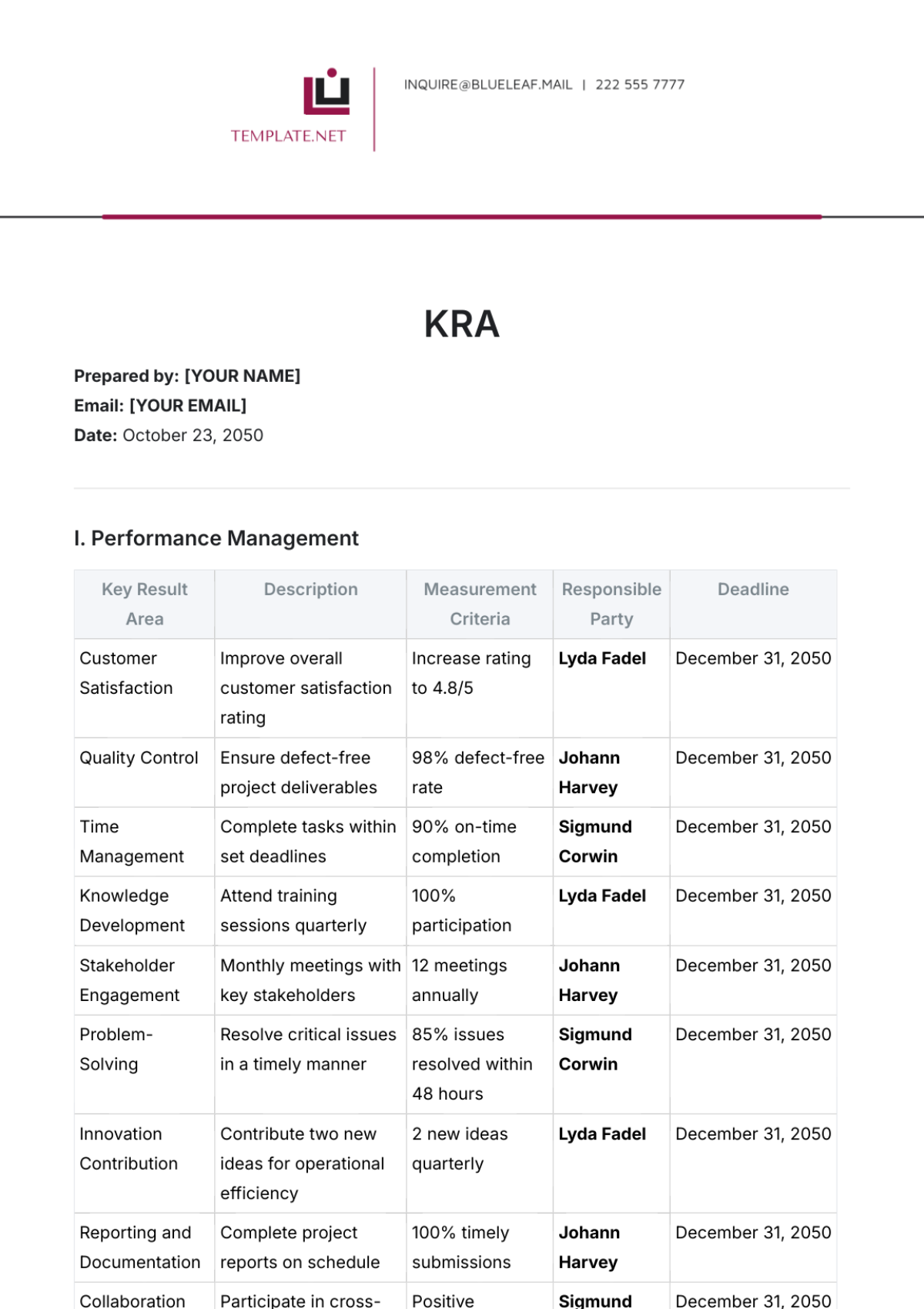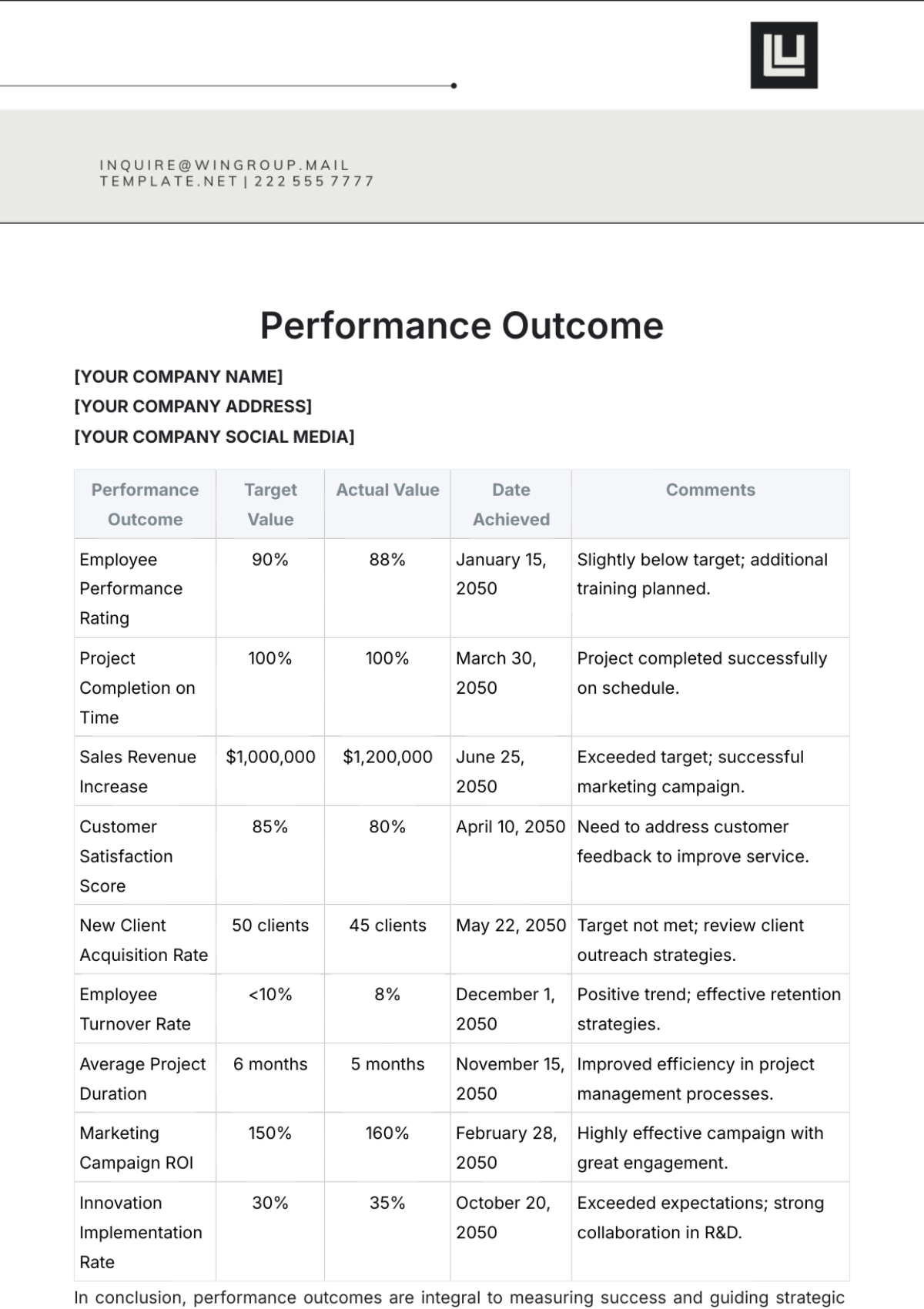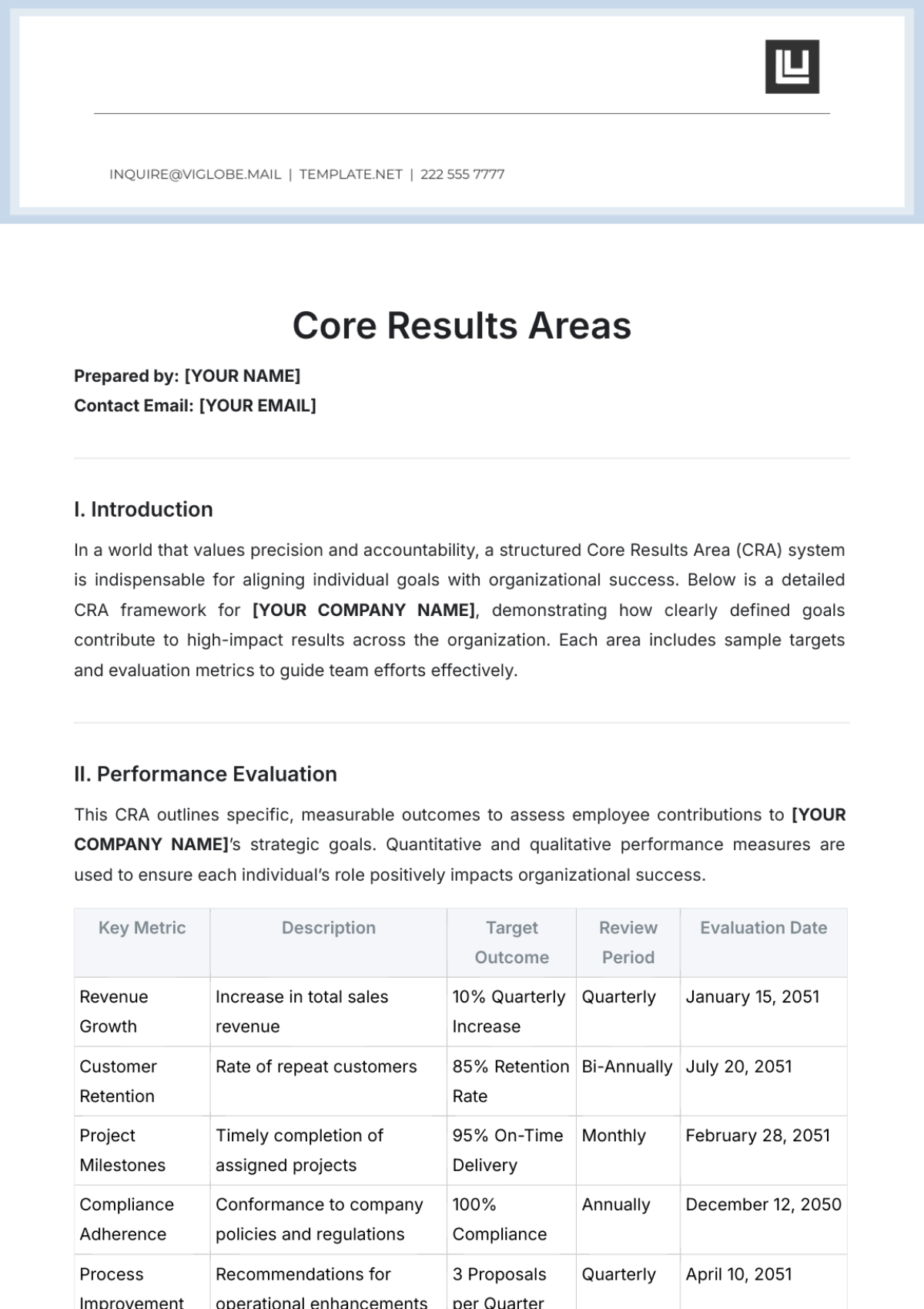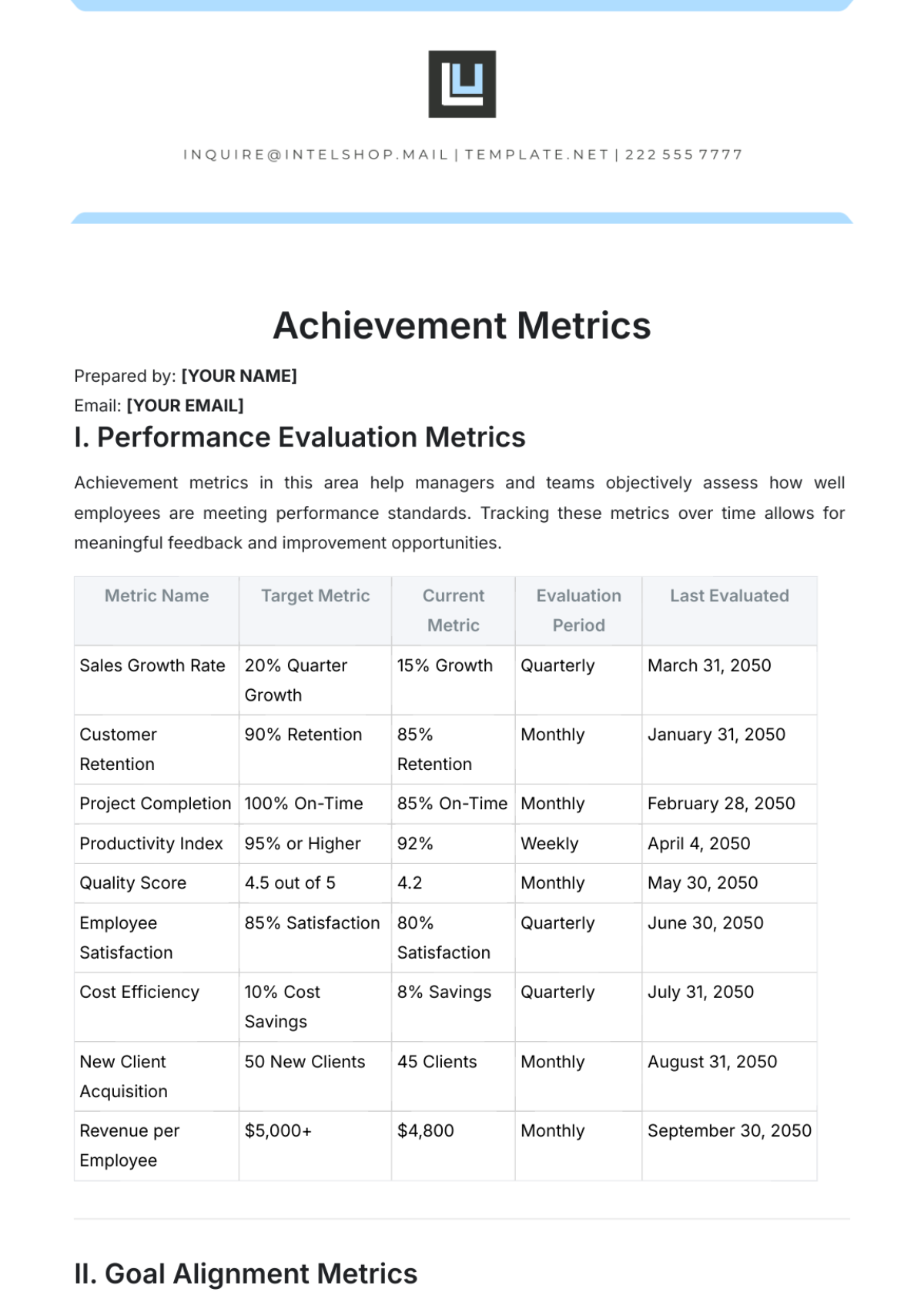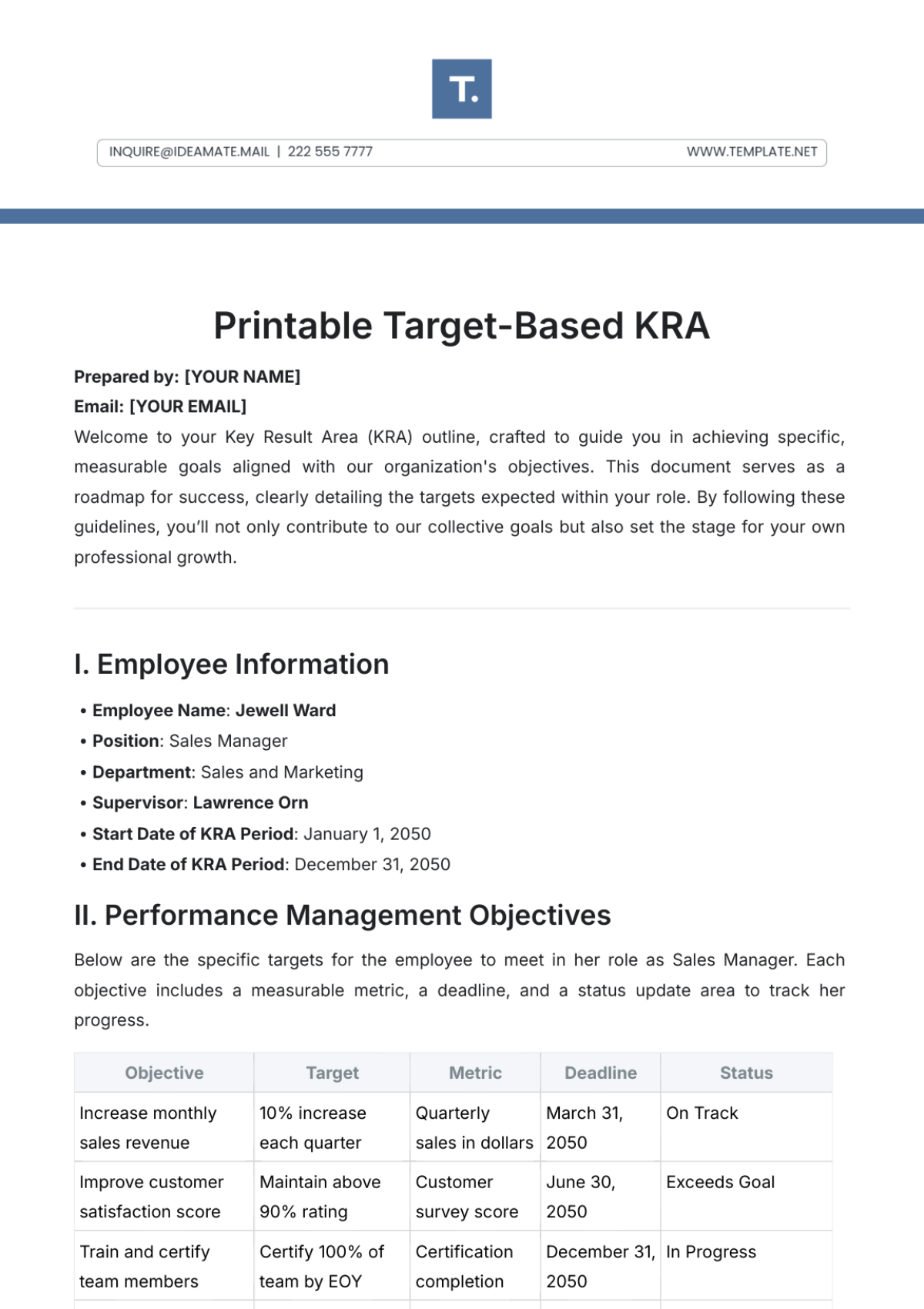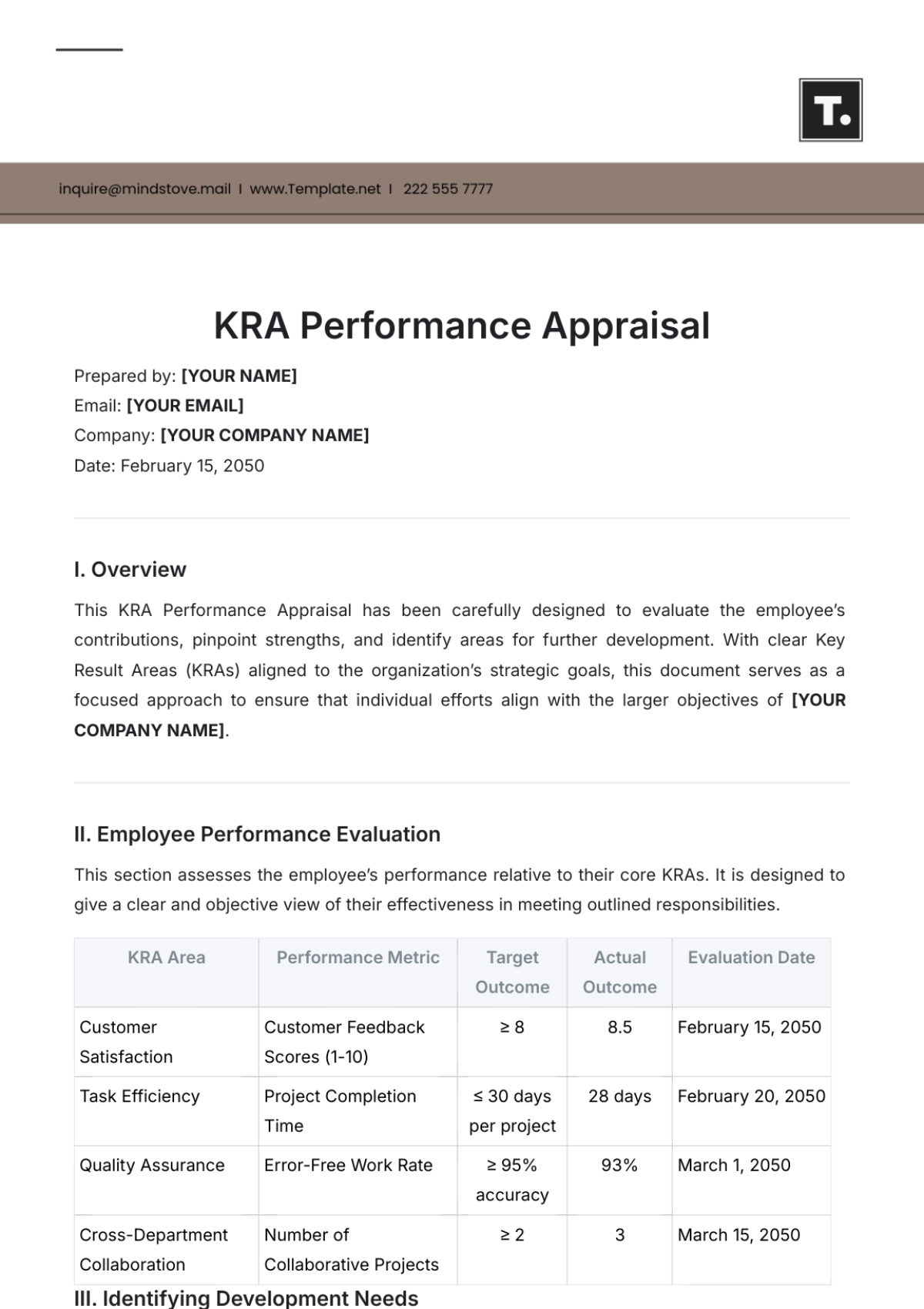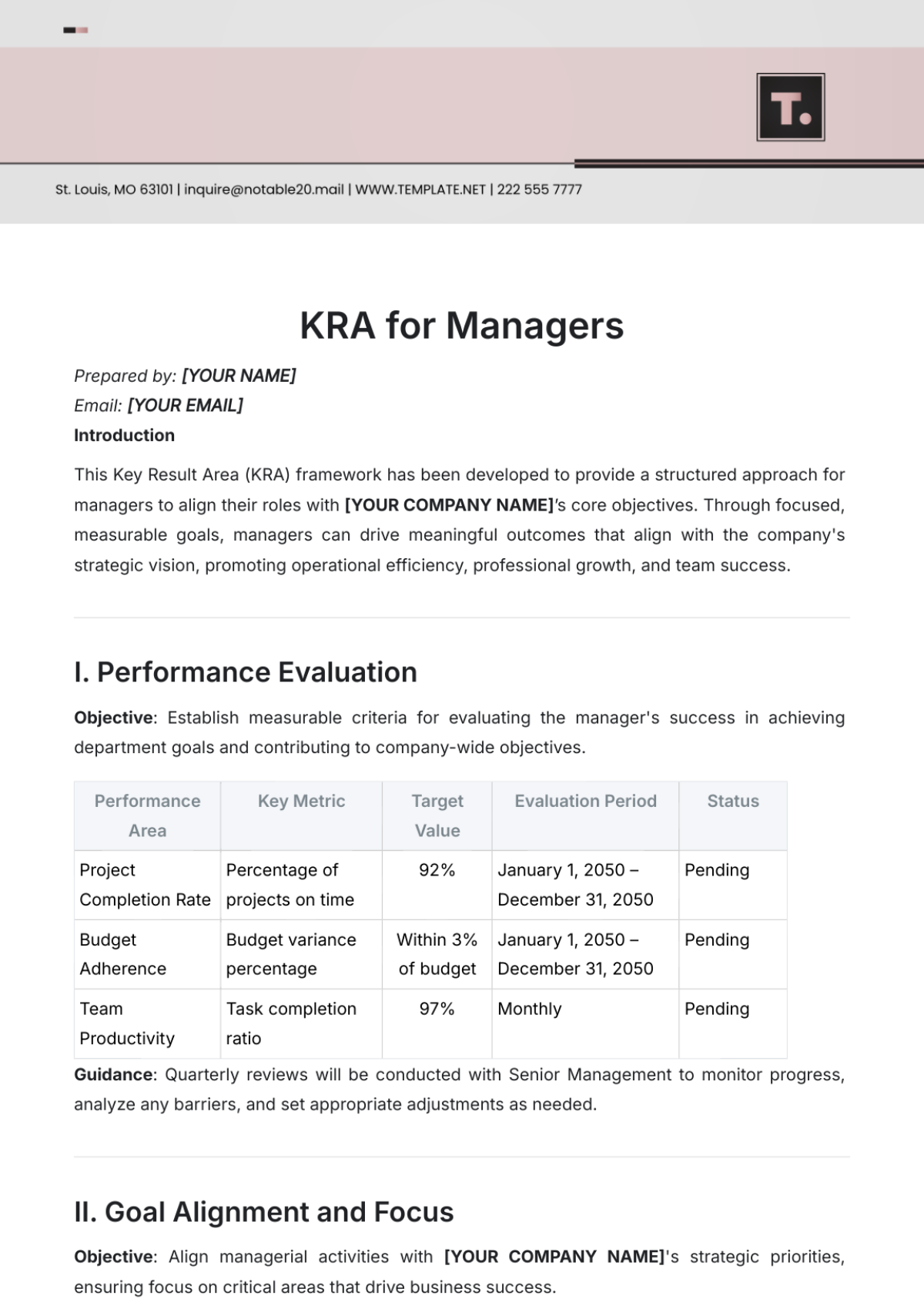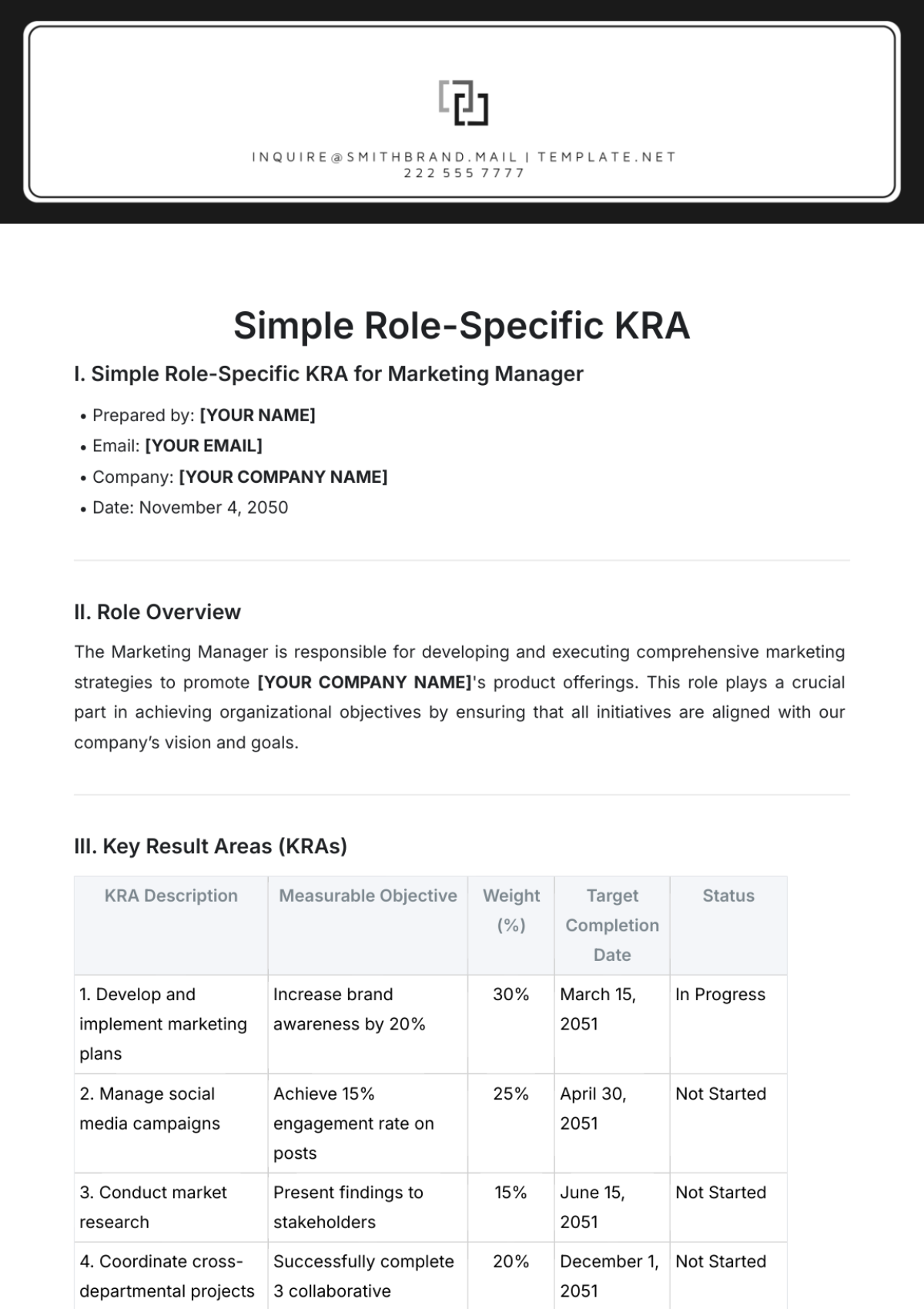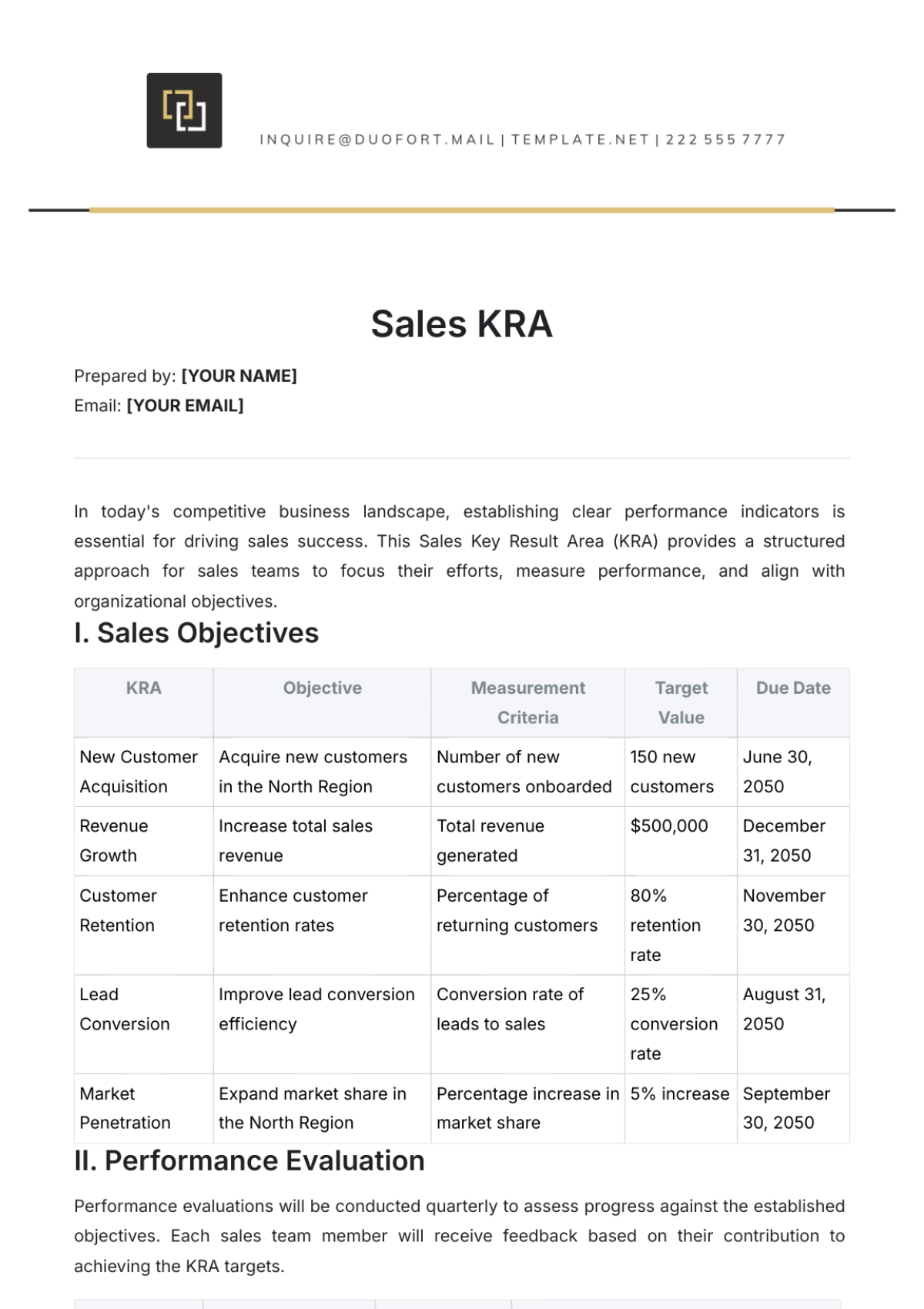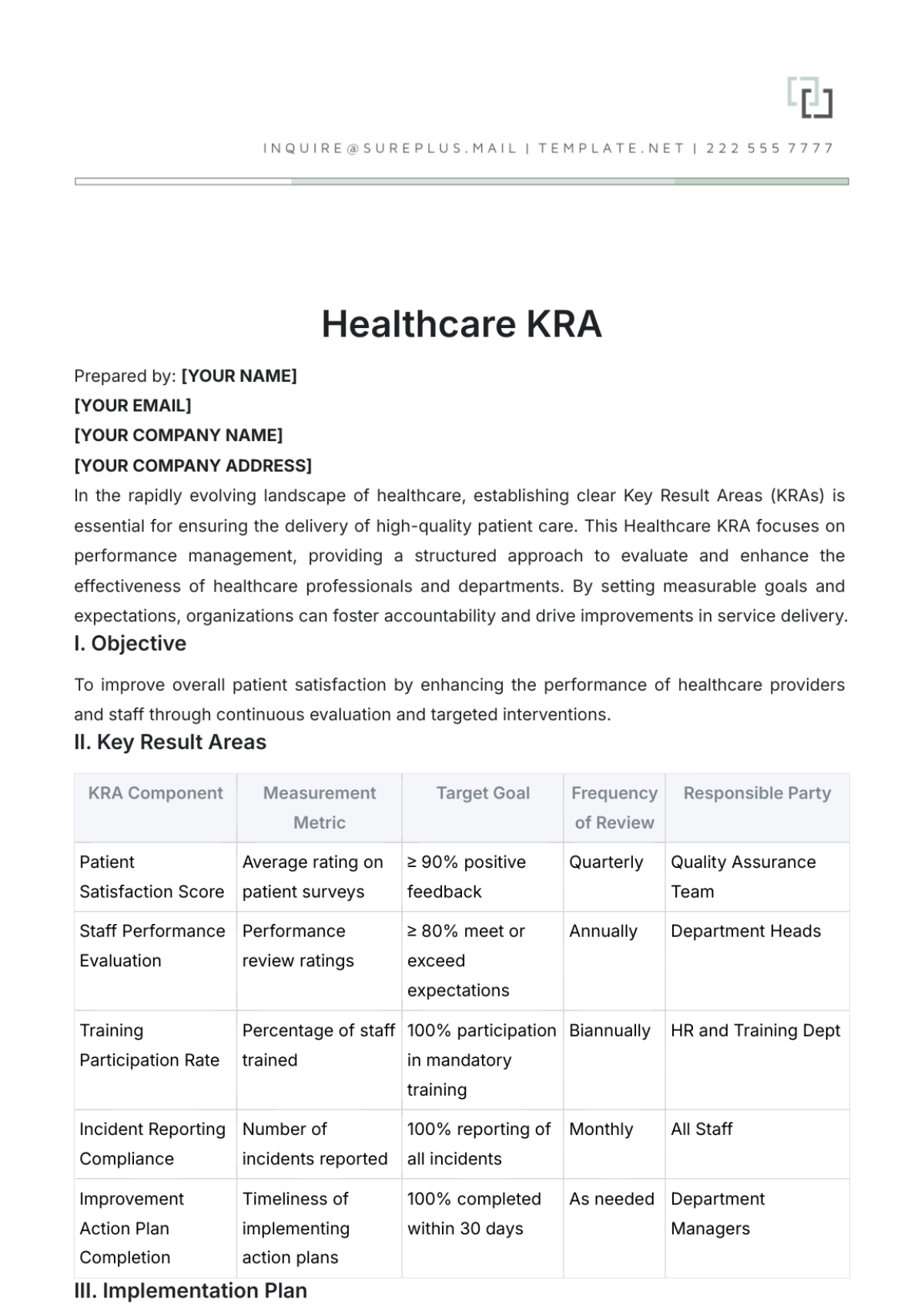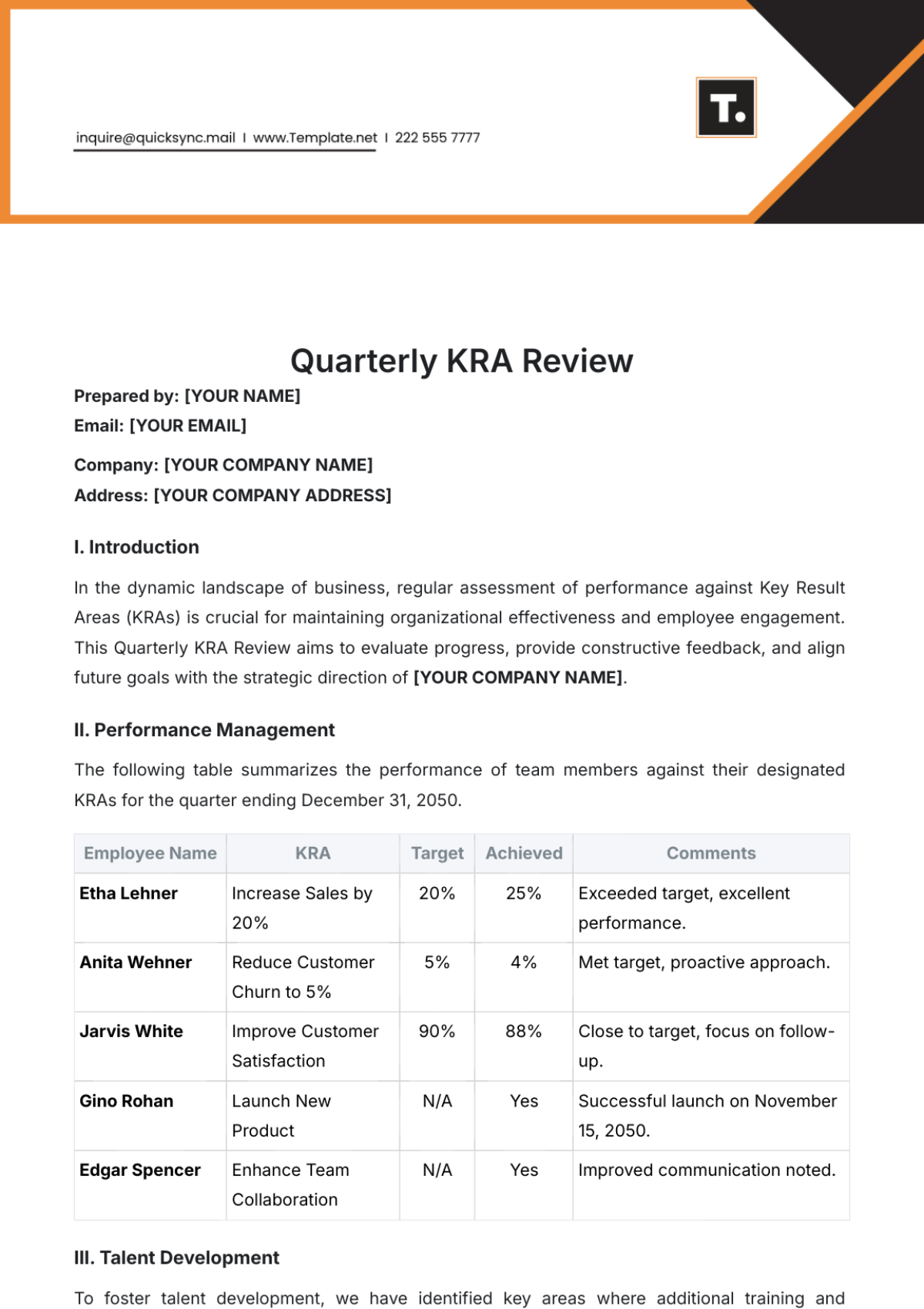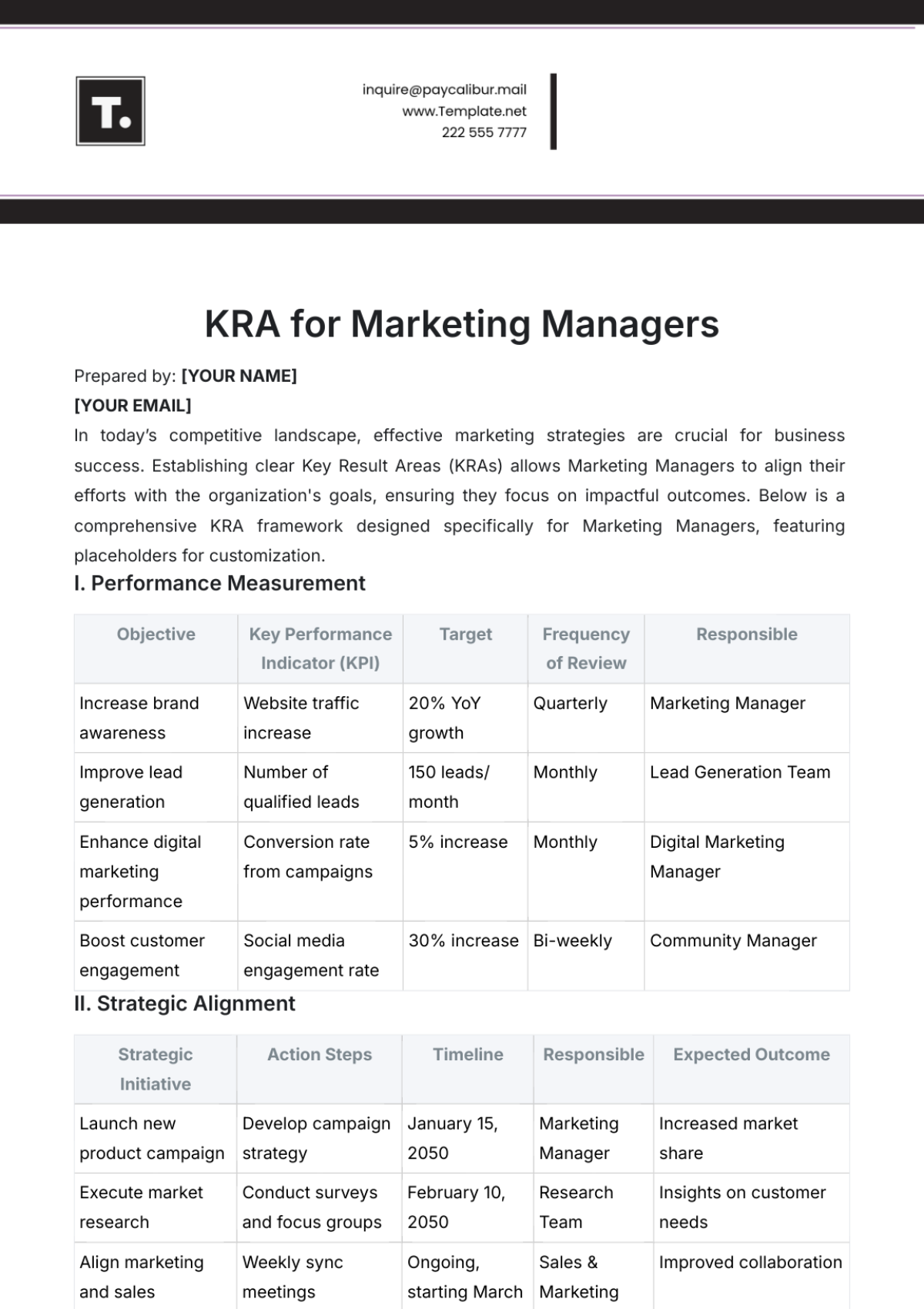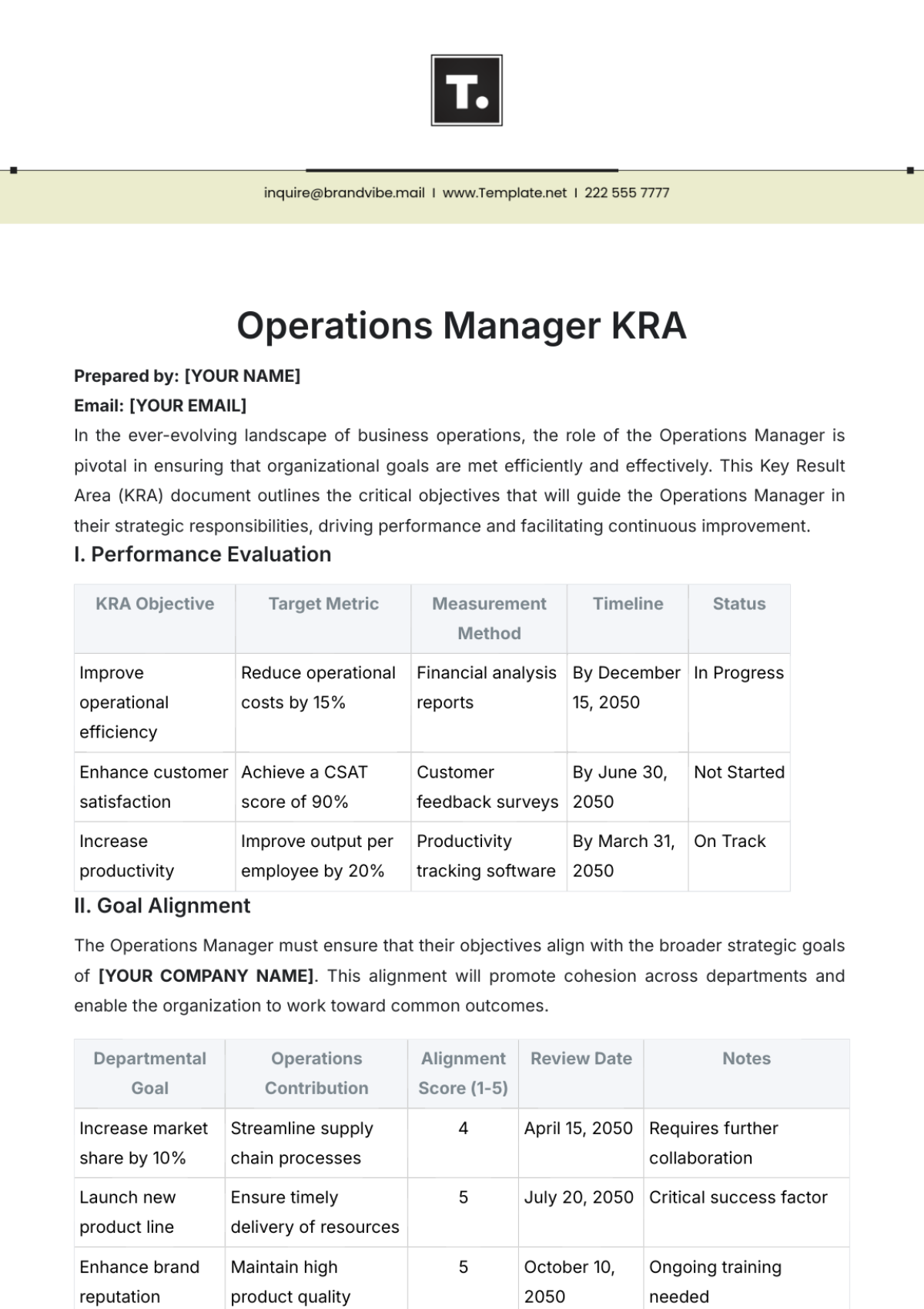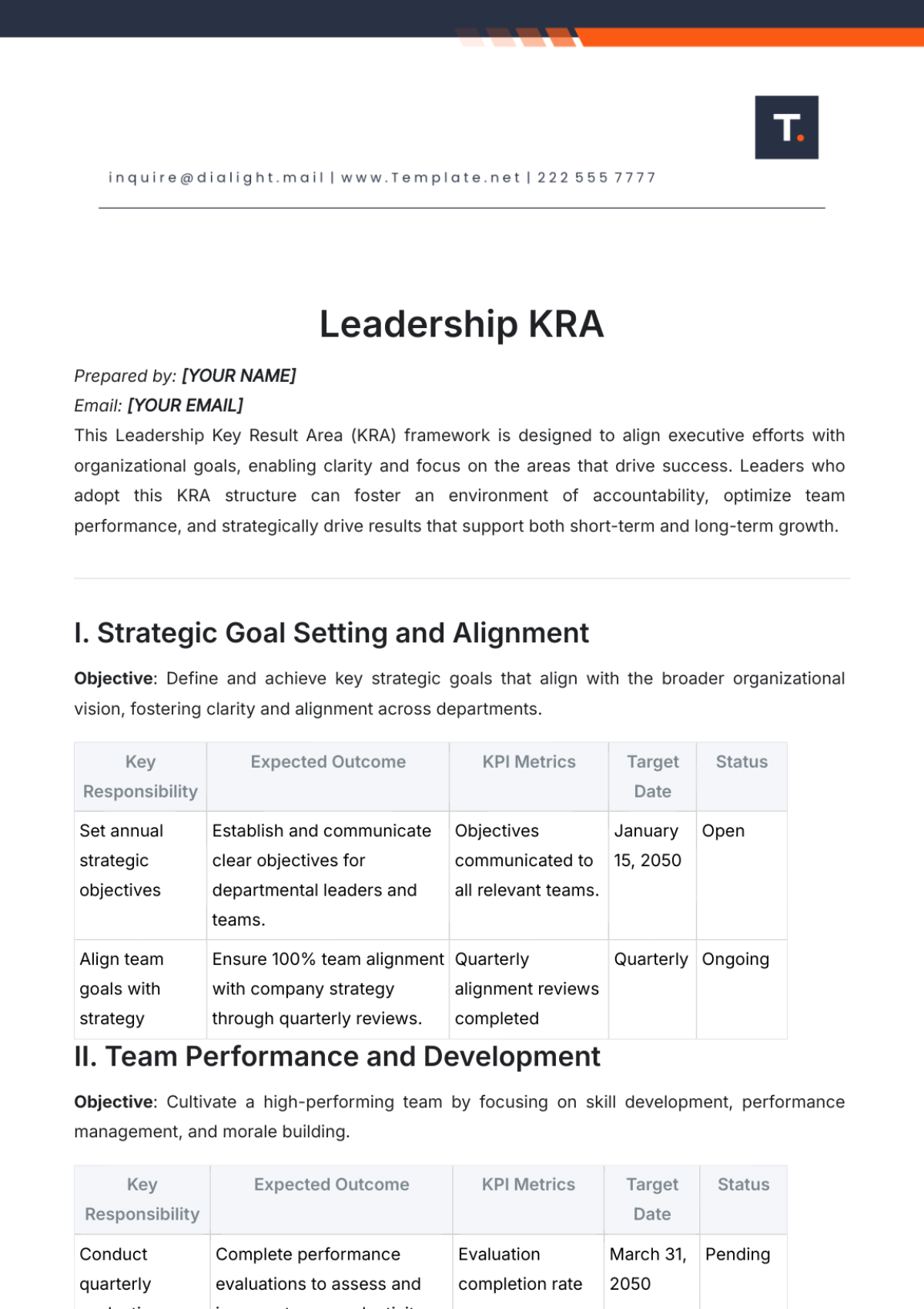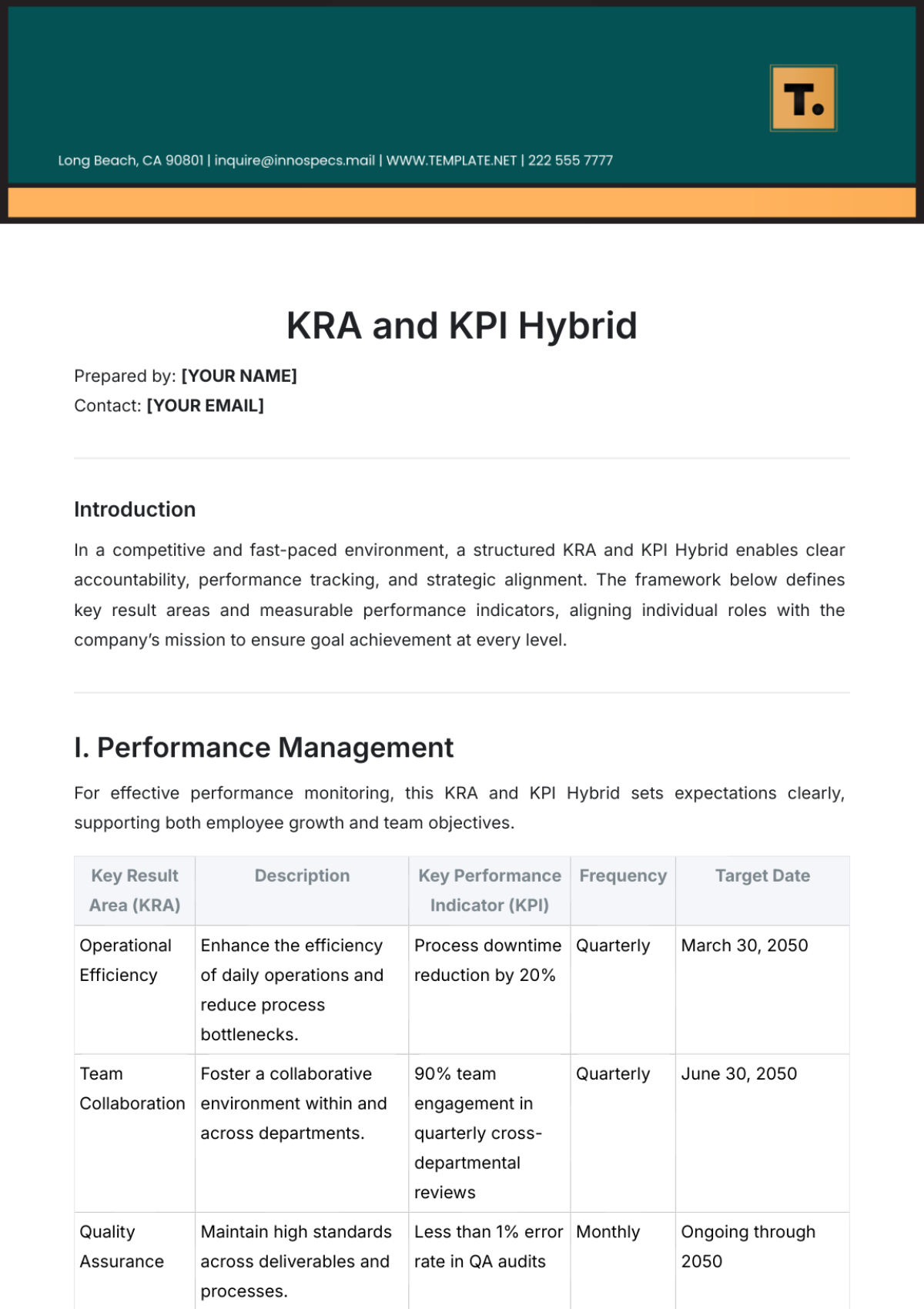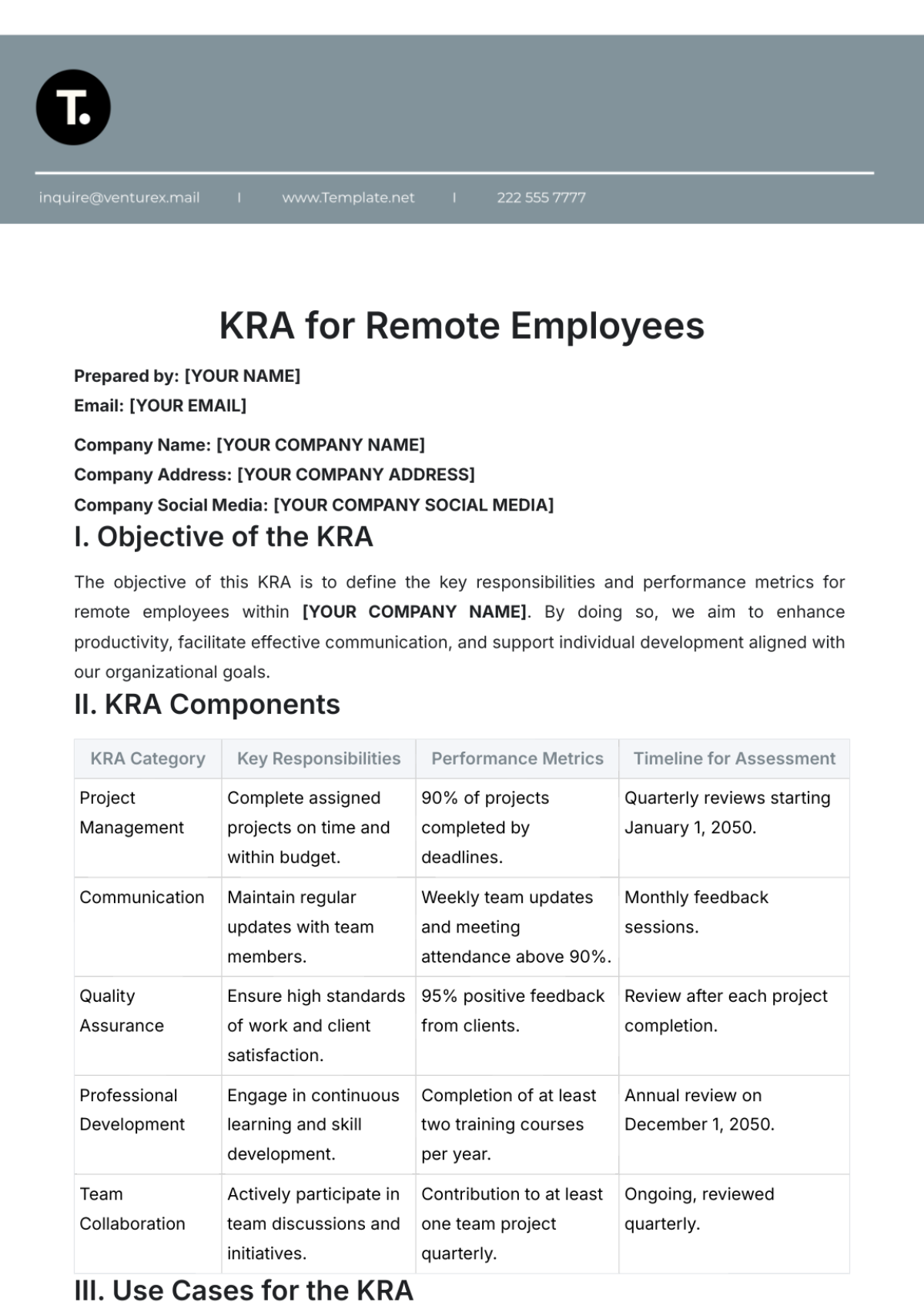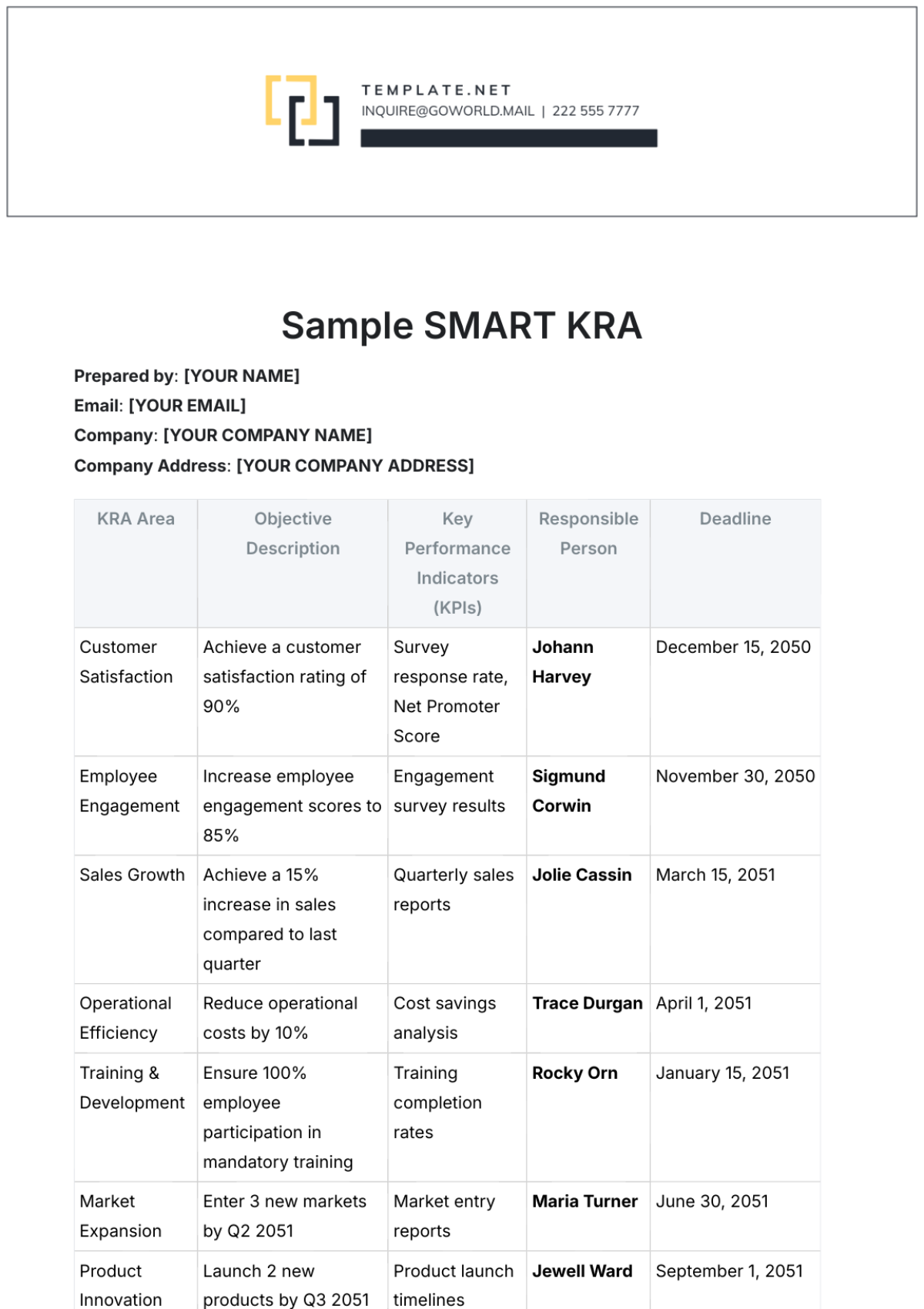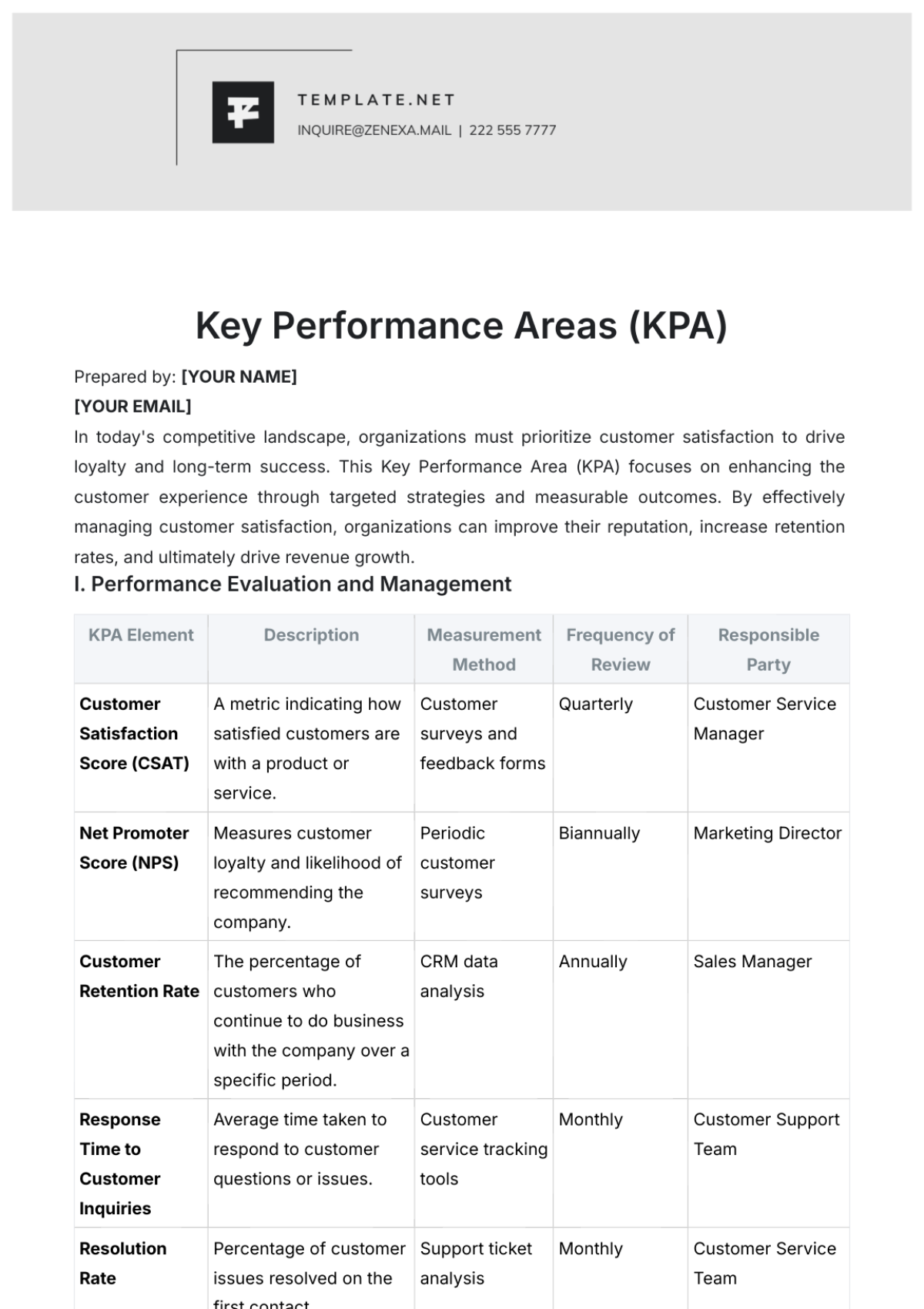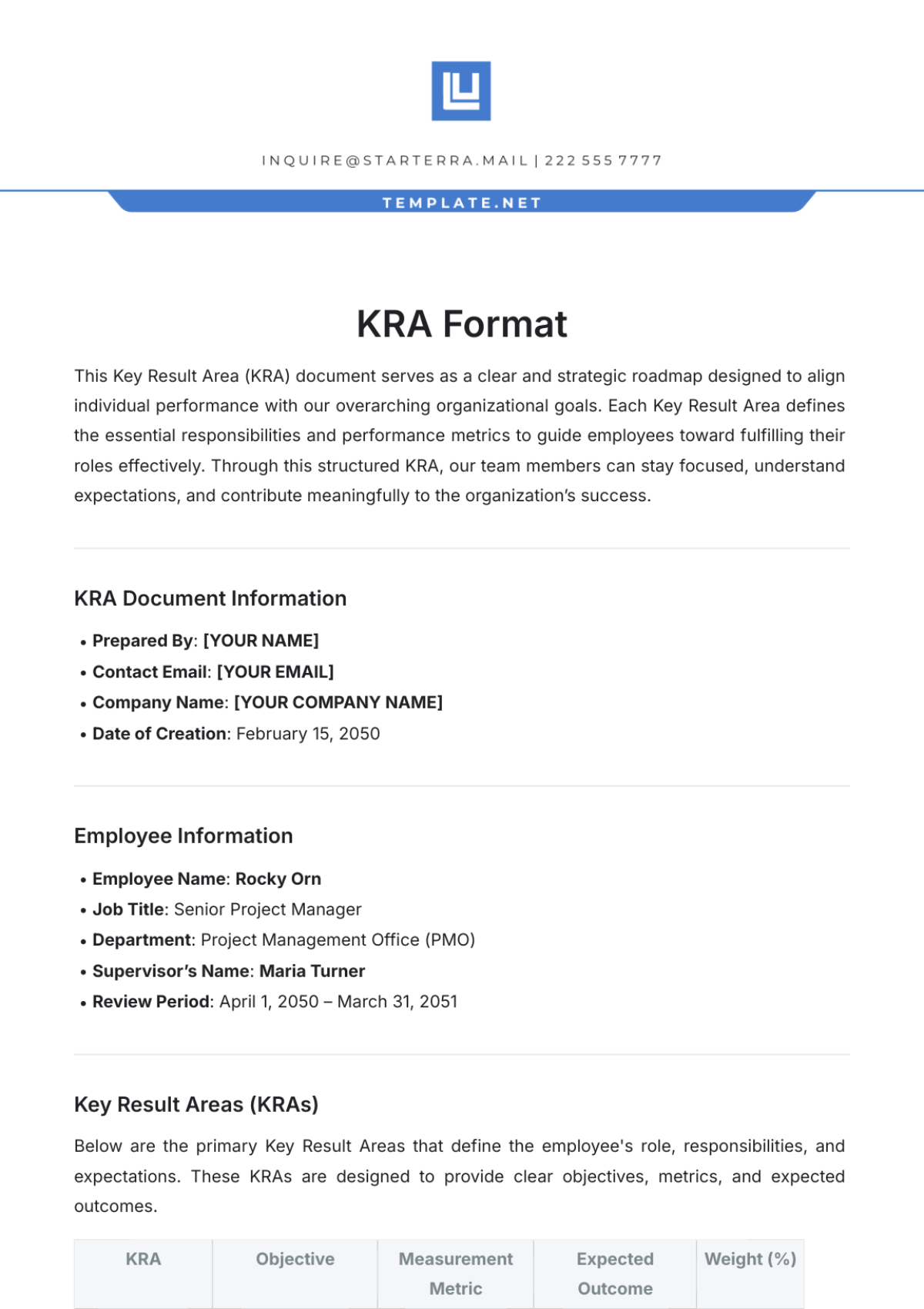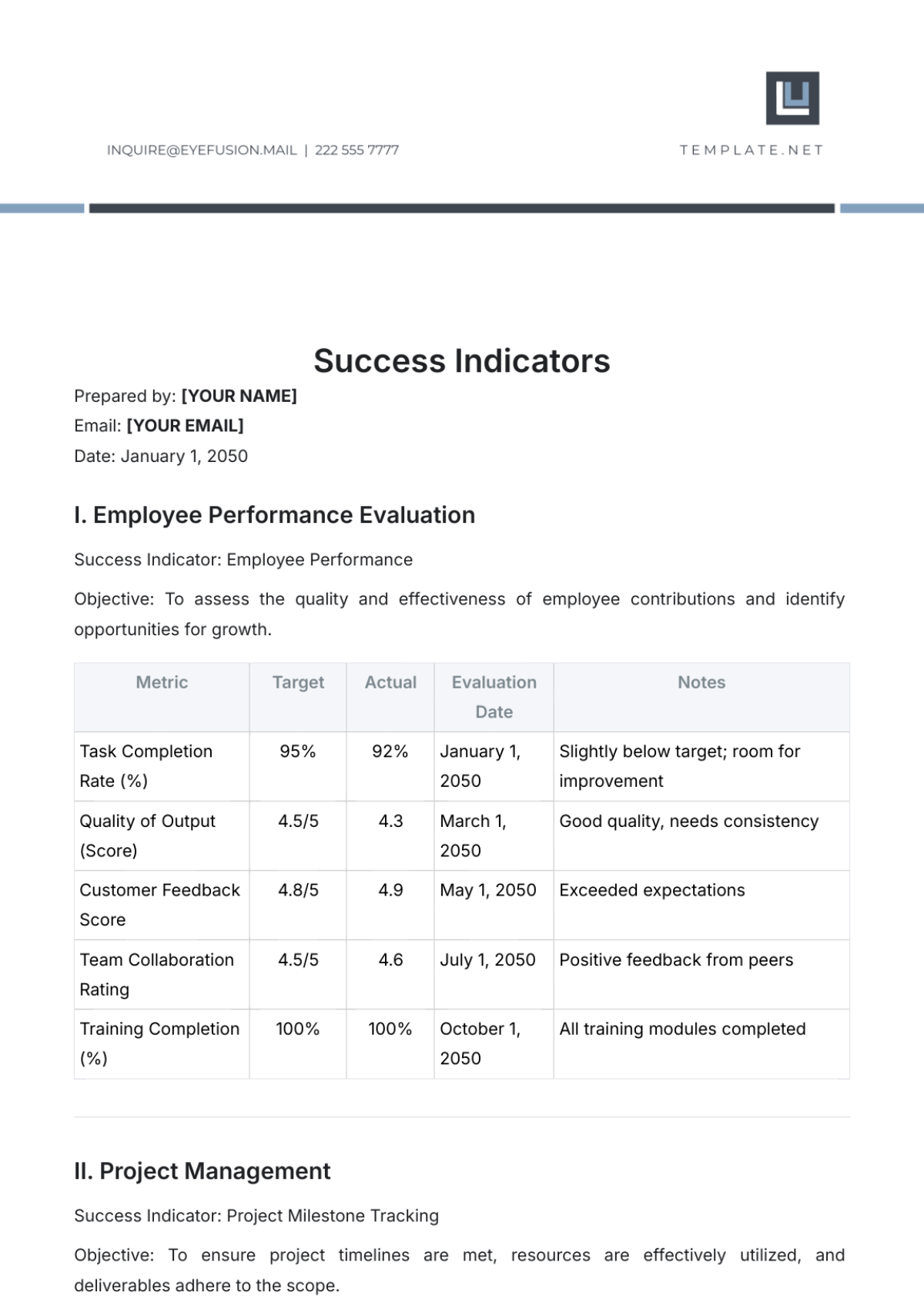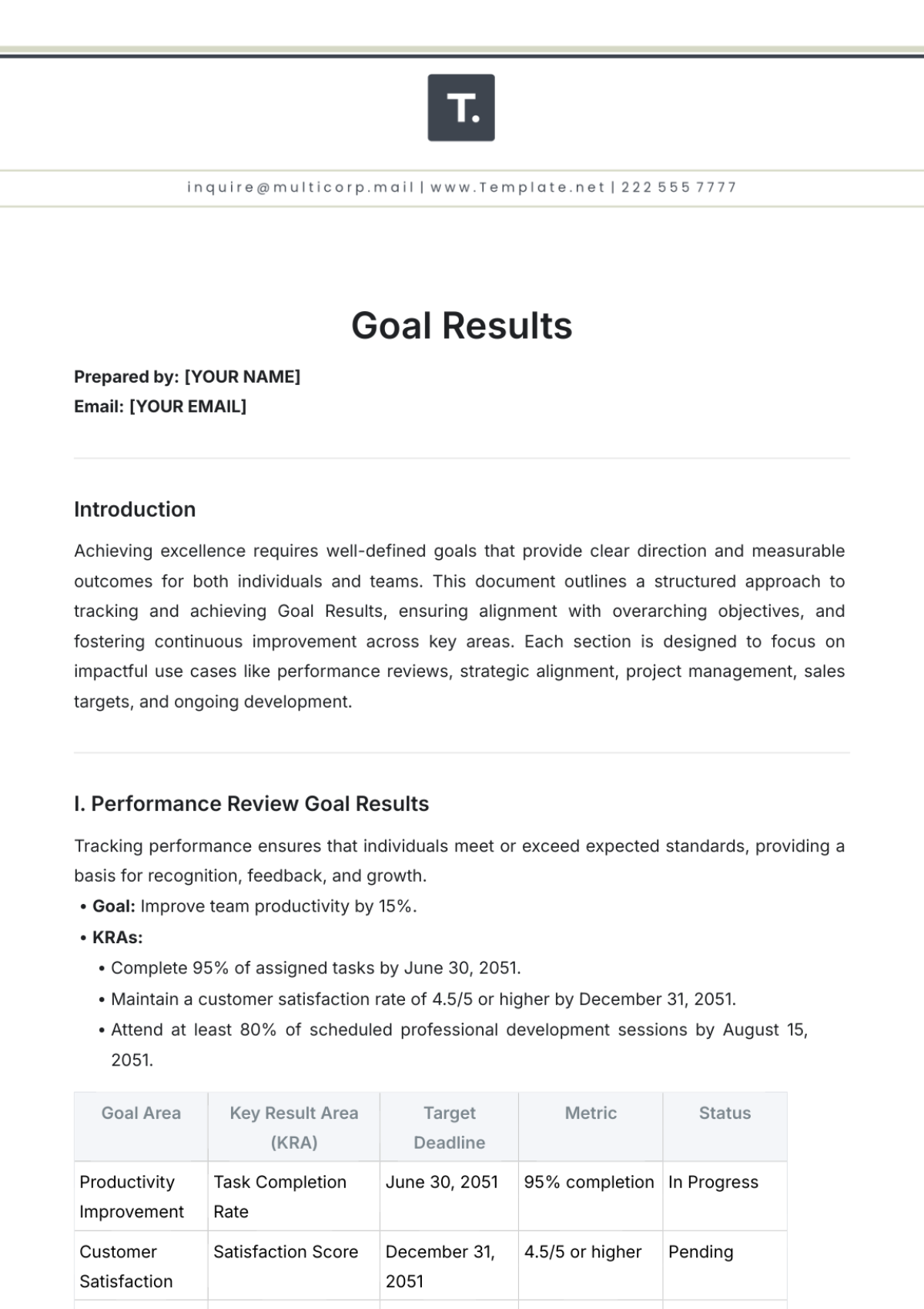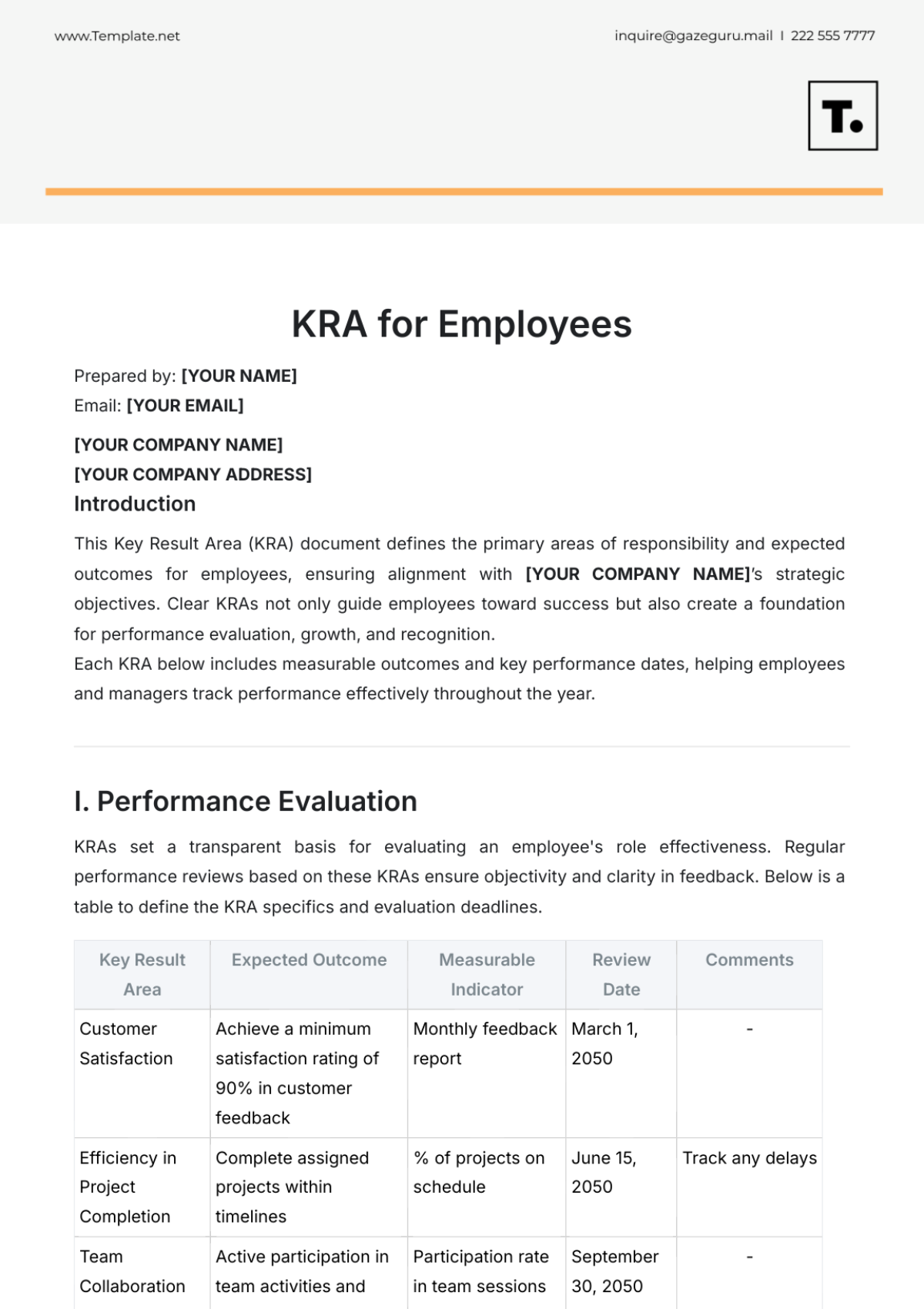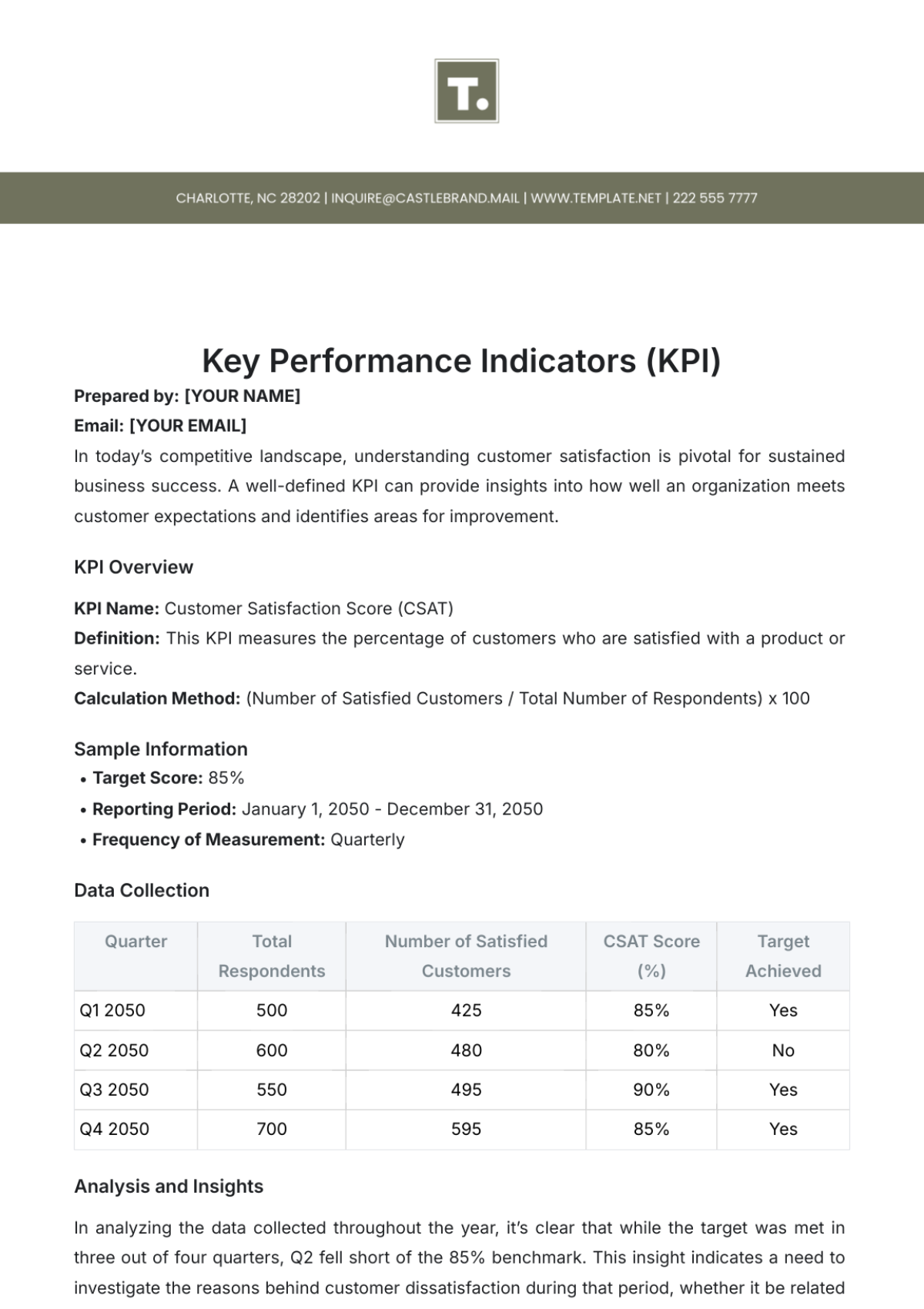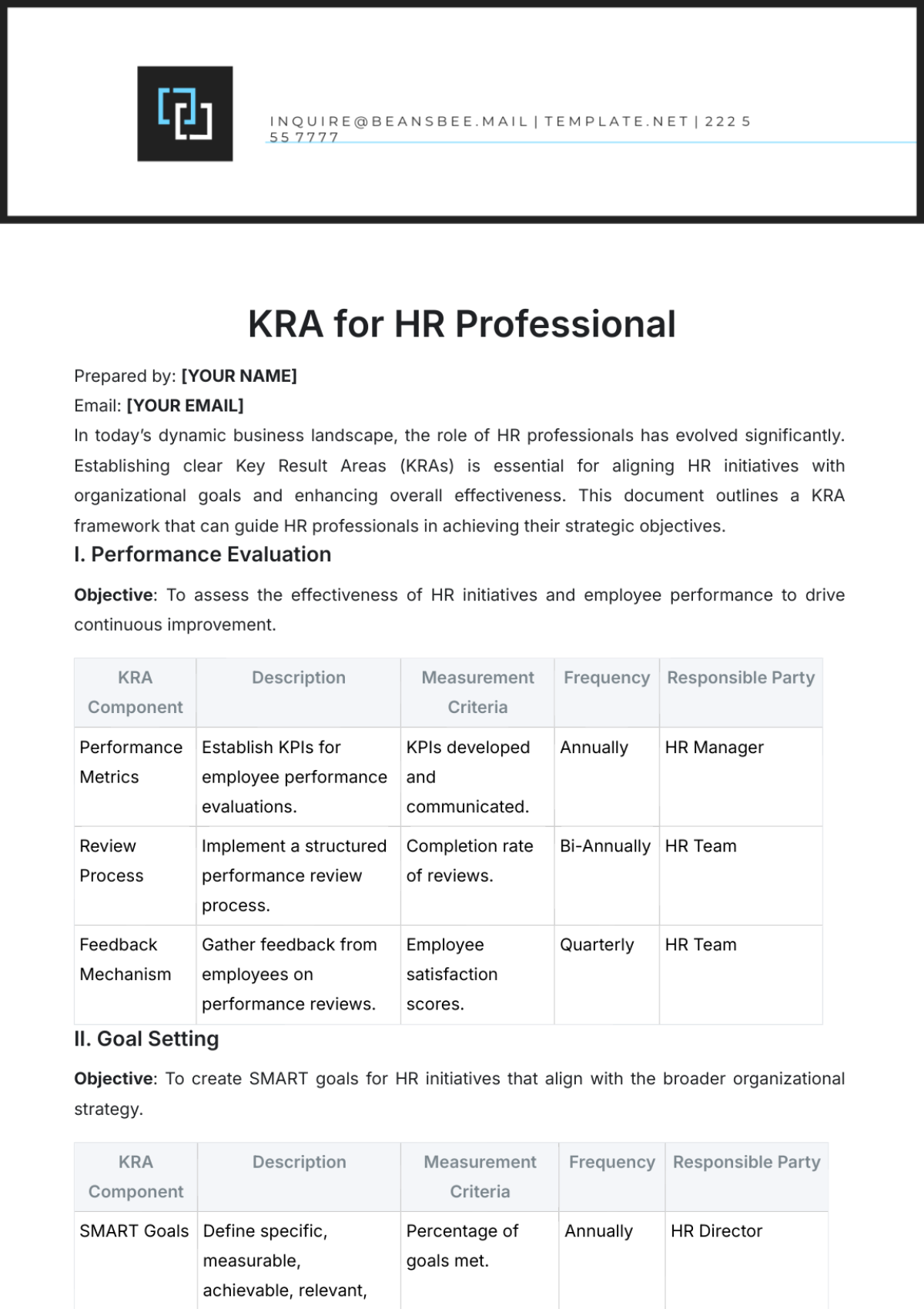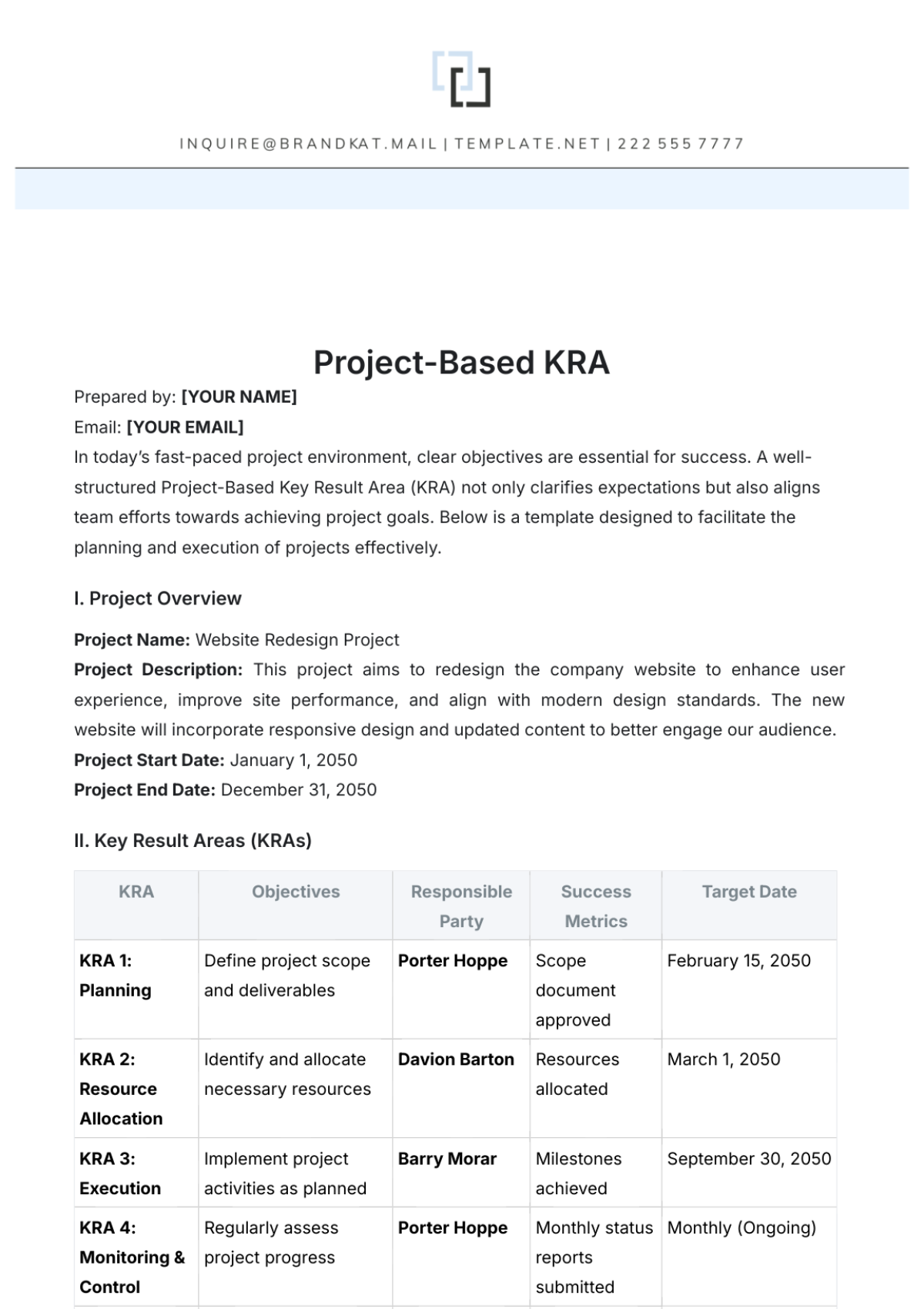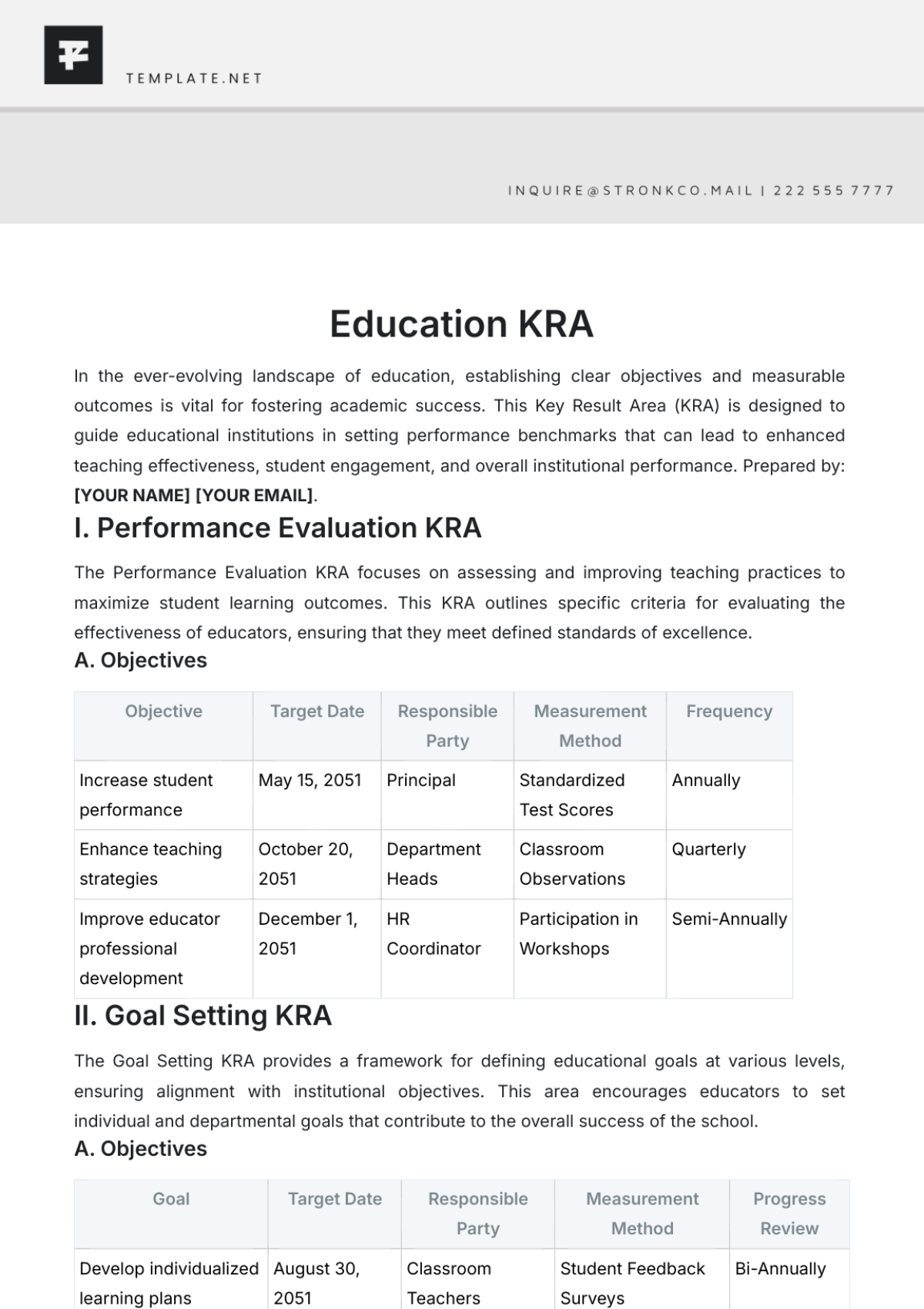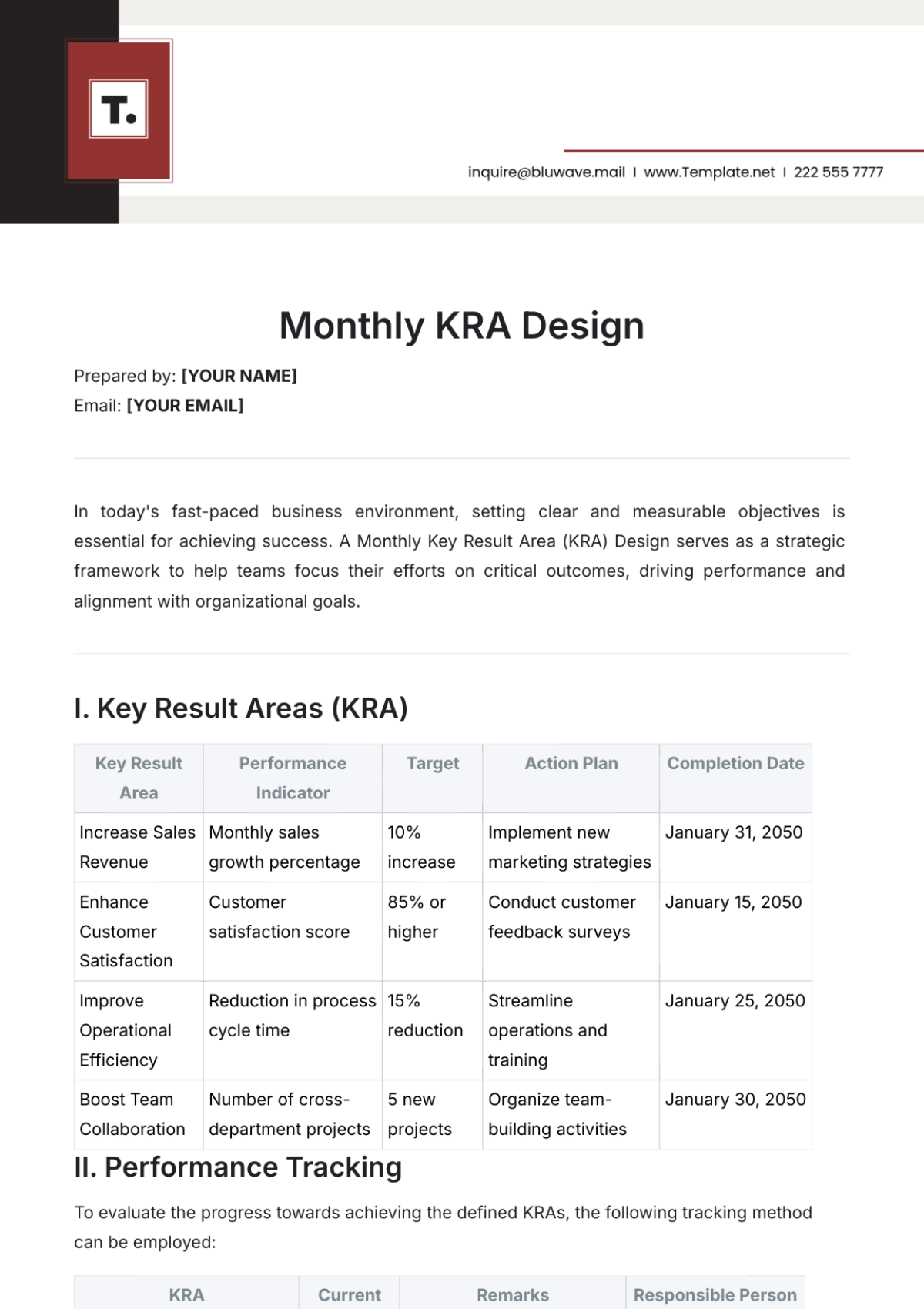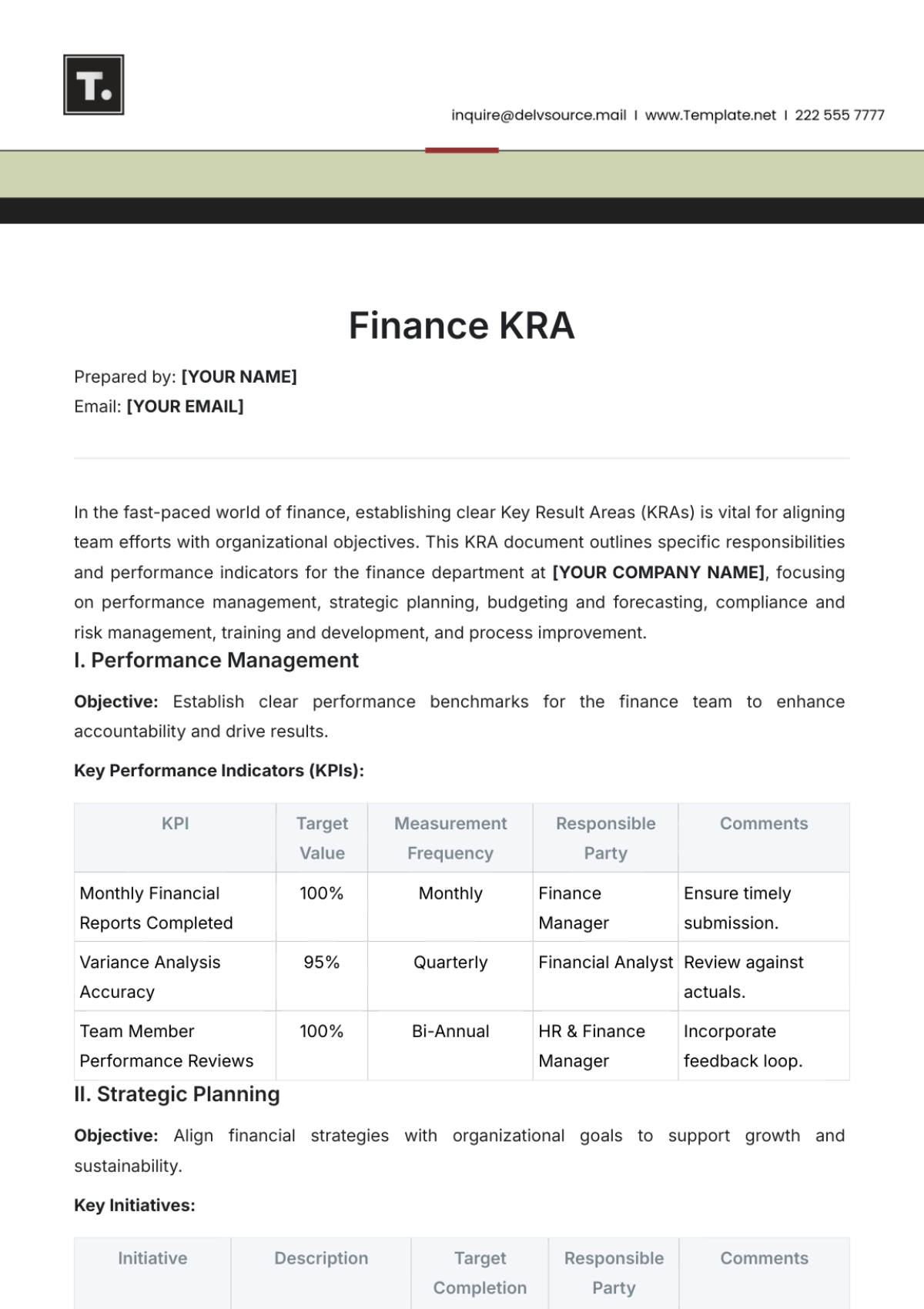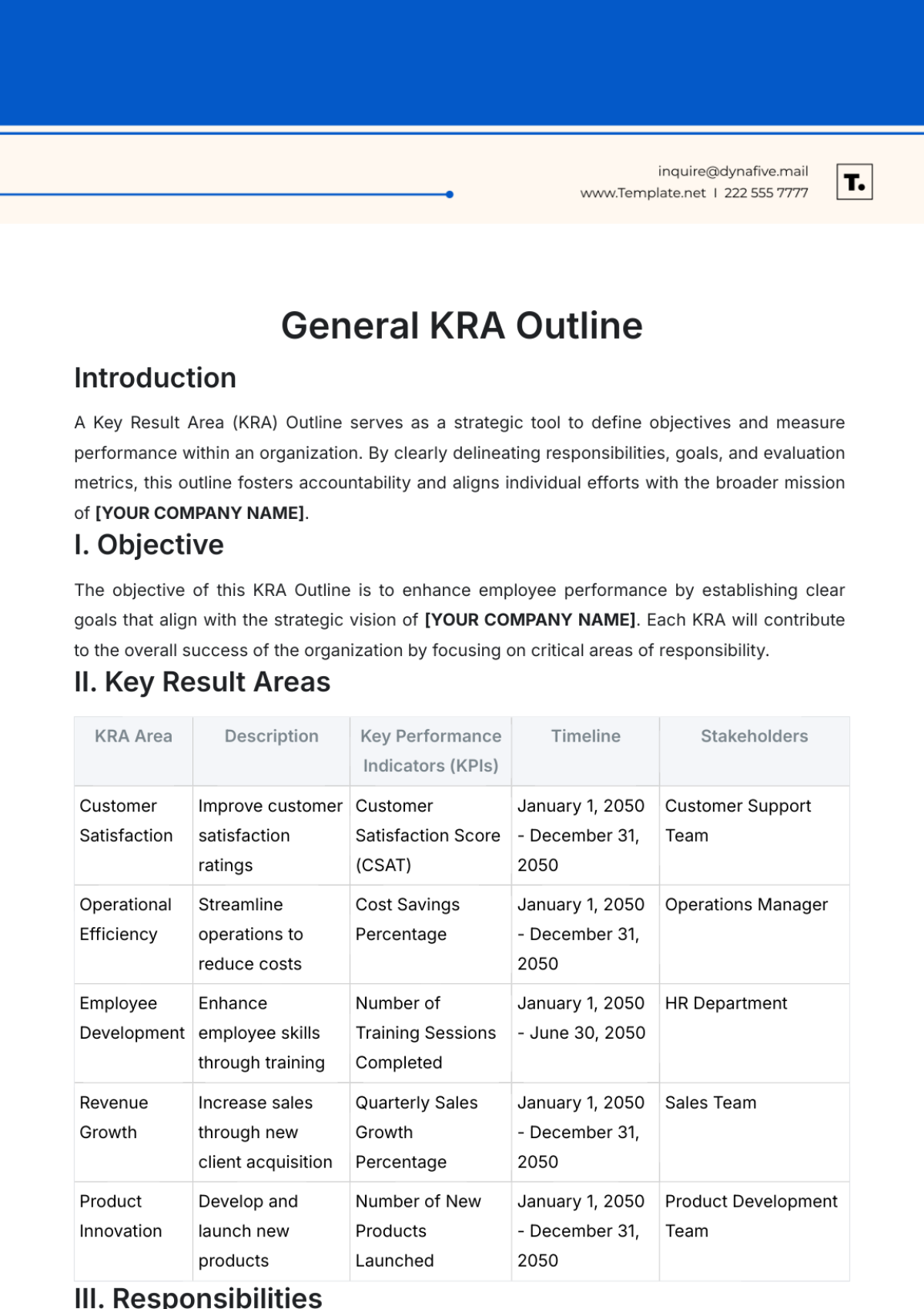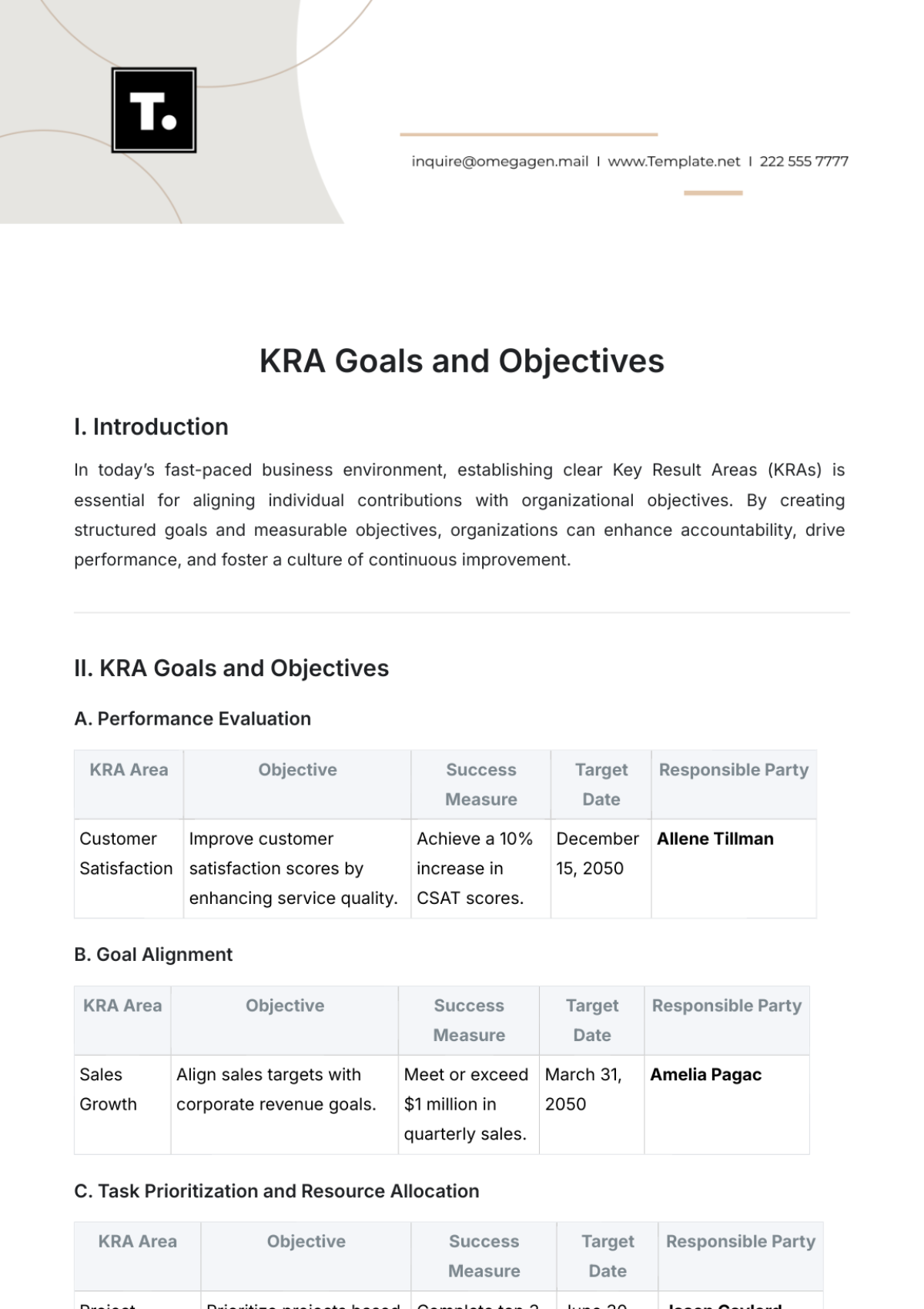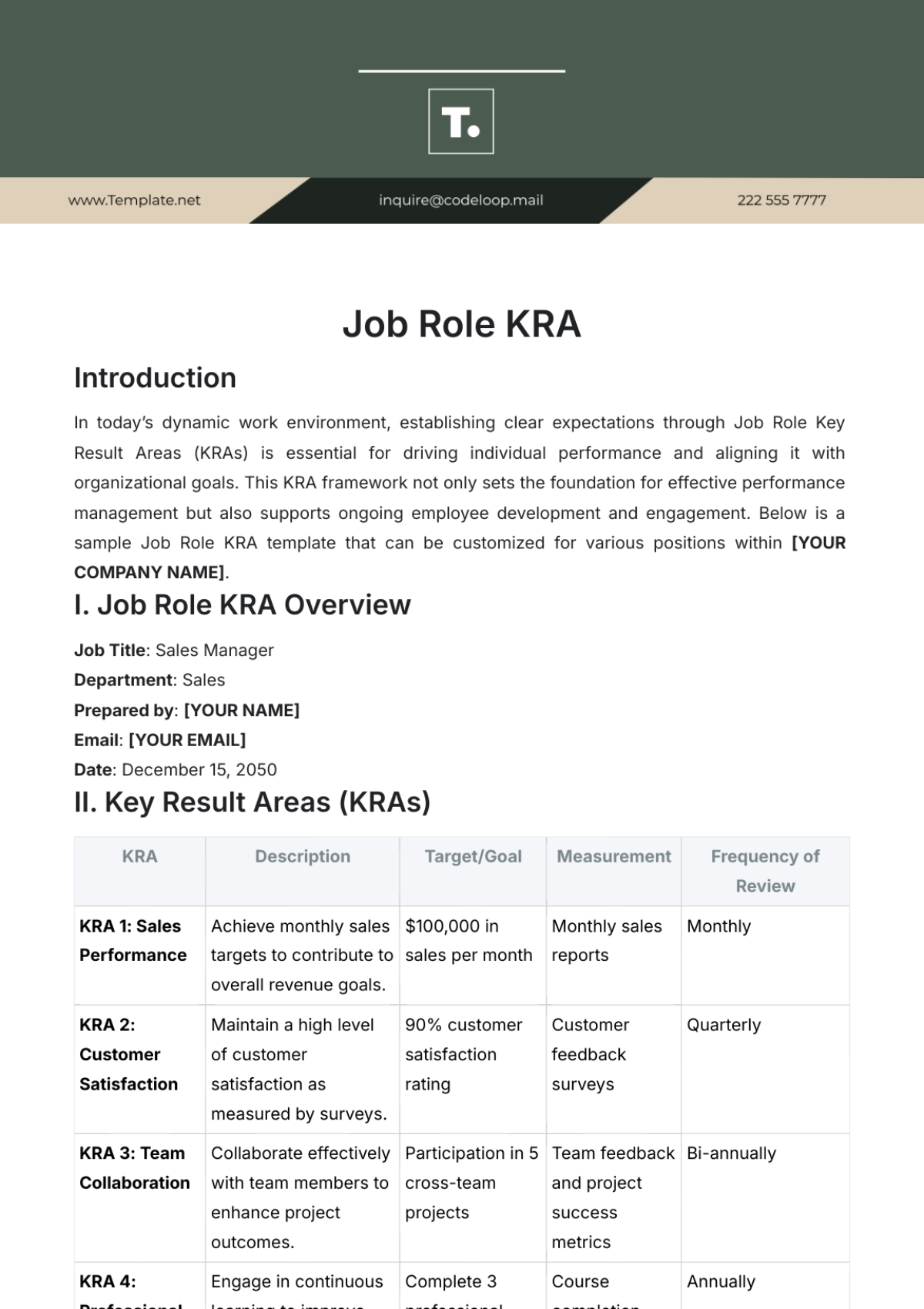KRA for Managers
Prepared by: [YOUR NAME]
Email: [YOUR EMAIL]
Introduction
This Key Result Area (KRA) framework has been developed to provide a structured approach for managers to align their roles with [YOUR COMPANY NAME]’s core objectives. Through focused, measurable goals, managers can drive meaningful outcomes that align with the company's strategic vision, promoting operational efficiency, professional growth, and team success.
I. Performance Evaluation
Objective: Establish measurable criteria for evaluating the manager's success in achieving department goals and contributing to company-wide objectives.
Performance Area | Key Metric | Target Value | Evaluation Period | Status |
|---|---|---|---|---|
Project Completion Rate | Percentage of projects on time | 92% | January 1, 2050 – December 31, 2050 | Pending |
Budget Adherence | Budget variance percentage | Within 3% of budget | January 1, 2050 – December 31, 2050 | Pending |
Team Productivity | Task completion ratio | 97% | Monthly | Pending |
Guidance: Quarterly reviews will be conducted with Senior Management to monitor progress, analyze any barriers, and set appropriate adjustments as needed.
II. Goal Alignment and Focus
Objective: Align managerial activities with [YOUR COMPANY NAME]'s strategic priorities, ensuring focus on critical areas that drive business success.
Key Goal Area | Goal Description | Target Outcome | Evaluation Date | Responsible Party |
|---|---|---|---|---|
Team Development | Build and sustain high-performing teams through targeted training | 85% employee engagement | June 30, 2050 | Malcolm Raynor |
Innovation Implementation | Drive two process innovations that enhance efficiency and customer satisfaction | 2 innovations implemented | December 31, 2050 | Philip Mitchell |
Customer Satisfaction | Increase customer satisfaction through refined service processes | 92% positive feedback | Monthly | Carmel Ryan |
III. Professional Development
Objective: Encourage skill-building and competency development to support both individual growth and the organization’s evolving needs.
Development Area | Action Plan | Timeline | Evaluation Date | Support Required |
|---|---|---|---|---|
Leadership Training | Complete a certified leadership course | By September 30, 2050 | October 15, 2050 | $2,500 from HR budget |
Communication Skills | Attend quarterly workshops on advanced team communication | Throughout 2050 | December 31, 2050 | Sponsored by HR Department |
Industry Knowledge | Attend three industry webinars on emerging tech and e-commerce trends | June 30, 2050 | July 15, 2050 | HR to provide budget |
Guidance: This development plan should be reviewed quarterly to track progress and adjust as needed for evolving industry standards.
IV. Resource Allocation
Objective: Efficiently utilize budget, time, and human resources to maximize department productivity and achieve high operational standards.
Resource Type | Allocation Description | Target Efficiency | Review Date | Approval Needed |
|---|---|---|---|---|
Budget | Manage departmental projects within allocated budget | 96% budget utilization | November 30, 2050 | Finance Department Approval |
Time Management | Distribute tasks among team for balanced workload | 40 hours/week per employee | Monthly | HR Support for Scheduling |
Staff Utilization | Allocate tasks based on skills to maximize output | 88% productivity rate | December 31, 2050 | Team Lead and HR Support |
V. Accountability and Transparency
Objective: Foster an environment of transparency in managerial performance by setting clear expectations and providing access to progress updates for all relevant stakeholders.
Regular Updates: Managers are required to submit bi-monthly progress reports to Senior Management outlining achievements and ongoing challenges.
Quarterly Review Meetings: Scheduled on March 31, 2050; June 30, 2050; September 30, 2050; and December 31, 2050.
Feedback Mechanism: Feedback from team members and peers will be collected bi-annually through anonymous surveys administered by the HR Department.
Conclusion
This KRA framework serves as a structured guide for managers at [YOUR COMPANY NAME] to achieve optimal performance and foster a culture of accountability and continuous improvement. Through ongoing monitoring and feedback, managers will contribute positively to the organization’s success while advancing their professional growth and enhancing team efficiency.
